June 7: Builders Day
Tuesday, June 7th: Builders Day
| access_time | 8:00-8:45 |
Breakfast Buffet
| access_time | 9:00-9:15 |
| people |
Brewster Kahle
Mitchell Baker |
Welcome: "The Moonshot – Locking the Web Open; what do we hope to accomplish?"

Brewster Kahle
Internet Archive

Brewster Kahle
Internet Archive
A passionate advocate for public Internet access and a successful entrepreneur, Brewster Kahle has spent his career intent on a singular focus: providing Universal Access to All Knowledge. He is the founder and Digital Librarian of the Internet Archive, one of the largest libraries in the world. Soon after graduating from the Massachusetts Institute of Technology where he studied artificial intelligence, Kahle helped found the company Thinking Machines, a supercomputer maker. In 1989, Kahle created the Internet’s first publishing system called Wide Area Information Server (WAIS), later selling the company to AOL. In 1996, Kahle co-founded Alexa Internet, which helps catalog the Web, selling it to Amazon.com in 1999. The Internet Archive, which he founded in 1996, now preserves 25 petabytes of data—the books, Web pages, music, television, and software of our cultural heritage, working with more than 450 library and university partners to create a digital library, accessible to all.

Mitchell Baker
Mozilla Foundation & Corp, Executive Chairperson

Mitchell Baker
Mozilla Foundation & Corp, Executive Chairperson
As the leader of the Mozilla Project, Mitchell Baker is responsible for organizing and motivating a massive, worldwide, collective of employees and volunteers who are breathing new life into the Internet with the Firefox Web browser, Firefox OS and other Mozilla products. Mitchell continues her commitment to an open, innovative Web and the infinite possibilities it presents.
| access_time | 9:15-9:45 |
| people |
Wendy Hanamura
|
Self Introductions: your name, where you are from, and in one sentence – what do you want?
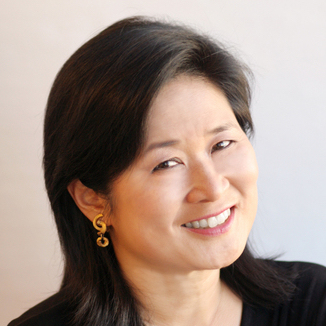
Wendy Hanamura
Internet Archive

Wendy Hanamura
Internet Archive
As the Director of Partnerships at the Internet Archive, Wendy uses her storytelling skills to share the remarkable stories locked in its collections. Previously, as Chief Digital Officer of KCETLink and Link TV, the national nonprofit media network, Wendy led diverse teams producing television series, apps, a semantic platform for global videos, international film contests and documentaries—all in the service of social change. Wendy began her career in journalism at Time magazine. She's reported and produced television content around the world for CBS, World Monitor Television, NHK (Japanese Broadcasting Corporation), and PBS.
| access_time | 9:45-10:00 |
| people |
Allen "Gunner" Gunn
|
Meeting New Allies
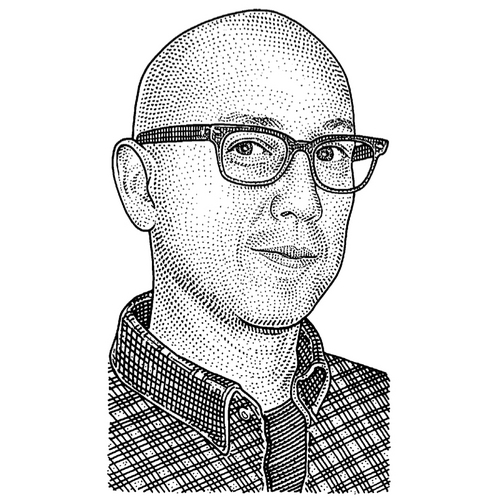
Allen "Gunner" Gunn
Aspiration Tech

Allen "Gunner" Gunn
Aspiration Tech
Allen Gunn is Executive Director of Aspiration www.aspirationtech.org in San Francisco, USA, and works to help NGOs, activists, foundations and software developers make more effective use of technology for social change. Gunner is an active facilitator, contributor, advisor, and/or partner in a number of open projects, including Mozilla, The Tor Project, Humanitarian OpenStreetMap Team, Peer 2 Peer University, Joomla!, CiviCRM, and Creative Commons.
| access_time | 10:00-10:45 |
| people |
Allen "Gunner" Gunn
|
Framing the Problem: What are the problems that need to be solved? What needs to be Decentralized? What can we agree on, what do we not agree on and what can we do today?

Allen "Gunner" Gunn
Aspiration Tech

Allen "Gunner" Gunn
Aspiration Tech
Allen Gunn is Executive Director of Aspiration www.aspirationtech.org in San Francisco, USA, and works to help NGOs, activists, foundations and software developers make more effective use of technology for social change. Gunner is an active facilitator, contributor, advisor, and/or partner in a number of open projects, including Mozilla, The Tor Project, Humanitarian OpenStreetMap Team, Peer 2 Peer University, Joomla!, CiviCRM, and Creative Commons.
| access_time | 10:45-11:15 |
Report Back: defining the elements that need to be created to build a Decentralized Web and get it adopted
| access_time | 11:15-11:30 |
Break
| access_time | 11:30-12:30 |
| people |
Zooko Wilcox
Cory Doctorow Van Jacobson Jim Nelson Tamas Kocsis Fred Grosskopf |
Three Stories: Lessons from the Field

Zooko Wilcox
Zcash/ Tahoe-LAFS

Zooko Wilcox
Zcash/ Tahoe-LAFS
Zooko has more than 20 years of experience in open, decentralized systems, cryptography and information security, and startups. He is recognized for his work on DigiCash, Mojo Nation, ZRTP, “Zooko's Triangle”, Tahoe-LAFS, BLAKE2, and SPHINCS. He is also the Founder and CEO of Least Authority. He sometimes blogs about health science. He tweets a lot. Zcash is a decentralized and open source cryptocurrency that aims to set a new standard for privacy through the use of groundbreaking cryptography.

Cory Doctorow
EFF

Cory Doctorow
EFF
Cory Doctorow craphound.com is a science fiction author, activist, journalist and blogger — the co-editor of Boing Boing boingboing.net and the author of the YA graphic novel IN REAL LIFE, the nonfiction business book INFORMATION DOESN’T WANT TO BE FREE, and young adult novels like HOMELAND, PIRATE CINEMA and LITTLE BROTHER and novels for adults like RAPTURE OF THE NERDS and MAKERS. He works for the Electronic Frontier Foundation and co-founded the UK Open Rights Group. Born in Toronto, Canada, he now lives in Los Angeles.

Van Jacobson
Google, Named Data Networking Project (NDN)

Van Jacobson
Google, Named Data Networking Project (NDN)
Van Jacobson’s algorithms for the Transmission Control Protocol (TCP) helped solve the problem of congestion and are used in over 90% of Internet hosts today. He is renowned for his pioneering achievements in network performance and scaling. Widely credited with enabling the Internet to expand in size and support increasing speed demands, he helped the Internet survive a major traffic surge (1988-89) without collapsing. - See more at: http://www.internethalloffame.org/inductees/van-jacobson#sthash.iIwDLMAe.dpuf

Jim Nelson
Internet Archive

Jim Nelson
Internet Archive
Jim Nelson is a Cluster Operations Engineer at the Internet Archive. Prior to joining the Archive, he was lead engineer and Executive Director of the Yorba Foundation, an open-source nonprofit. In the past he's worked at XTree Company, Starlight Networks, and a whole lot of Silicon Valley startups you've probably never heard of. Jim’s novel Bridge Daughter is now available from Kindle Press.
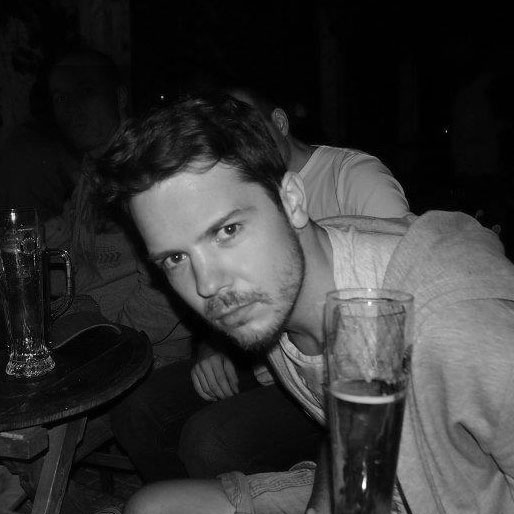
Tamas Kocsis
Zeronet

Tamas Kocsis
Zeronet
Tamas is a self-taught web builder from Hungary who has been in love with the Internet since the dial-up era. He is the founder and programmer of ZeroNet https://zeronet.io which allows you to create decentralized, P2P and real-time updated websites using Bitcoin cryptography and the BitTorrent network.

Fred Grosskopf
Jolocom

Fred Grosskopf
Jolocom
Fred is an independent software developer who is currently supporting the Jolocom project. He believes truly free and self-determined communication is a fundamental good that human society needs to overcome the challenges it is facing.
| access_time | 12:30-1:30 |
Lunch break
| access_time | 1:30-2:30 |
Science Fair: 25 technologies, 25 tables. Time to ask questions and explore
| access_time | 2:30-2:45 |
Break
| access_time | 2:45-3:00 |
| people |
Wendy Hanamura
Greg McMullen Joachim Lohkamp Allen "Gunner" Gunn John Light Paige Peterson Mek Karpeles Constance Choi Courtney Mumma Kyle Drake |
Break Out Sessions: Meet the facilitators!

Wendy Hanamura
Internet Archive

Wendy Hanamura
Internet Archive
As the Director of Partnerships at the Internet Archive, Wendy uses her storytelling skills to share the remarkable stories locked in its collections. Previously, as Chief Digital Officer of KCETLink and Link TV, the national nonprofit media network, Wendy led diverse teams producing television series, apps, a semantic platform for global videos, international film contests and documentaries—all in the service of social change. Wendy began her career in journalism at Time magazine. She's reported and produced television content around the world for CBS, World Monitor Television, NHK (Japanese Broadcasting Corporation), and PBS.

Greg McMullen
IPDB/BigchainDB

Greg McMullen
IPDB/BigchainDB
Greg is Chief Policy Officer at ascribe.io and BigchainDB.com Before joining ascribe, Greg spent five years as a lawyer with one of Canada’s top class action law firms, where he worked on class actions against Facebook and the Government of Canada alleging privacy violations, and against Teranet alleging copyright infringement. Greg is on the Board of Directors of the British Columbia Civil Liberties Association, and the author of the BCCLA handbook on laptop and smartphone searches at the Canadian border.

Joachim Lohkamp
Jolocom

Joachim Lohkamp
Jolocom
Joachim is an entrepreneur and tech enthusiast. He is obsessed with knowledge, change and innovation. Currently, he is Founder and CEO of Jolocom, a Berlin-based startup building decentralized tools that lets you generate your own digital identity to assist linkage and attribution of data. Besides that Joachim is a connector for Ouishare, currently curating the content for the Decentralization & Blockchain track of the next Ouishare Fest in Paris. Also he organizes GETDcent and is an active member of the Agora Collective in Berlin.

Allen "Gunner" Gunn
Aspiration Tech

Allen "Gunner" Gunn
Aspiration Tech
Allen Gunn is Executive Director of Aspiration www.aspirationtech.org in San Francisco, USA, and works to help NGOs, activists, foundations and software developers make more effective use of technology for social change. Gunner is an active facilitator, contributor, advisor, and/or partner in a number of open projects, including Mozilla, The Tor Project, Humanitarian OpenStreetMap Team, Peer 2 Peer University, Joomla!, CiviCRM, and Creative Commons.

John Light
Bitseed

John Light
Bitseed
John Light is a co-founder of Bitseed, author of Bitcoin: Be Your Own Bank, writer at the okTurtles Foundation, free software advocate and contributor, and advisor to cryptocurrency startups and investors. He organized Blockstack Summit NYC in 2015, founded the Buttonwood SF P2P Cryptocurrency Trading meetup in San Francisco, hosts the P2P Connects Us podcast, and is an avid reader and writer on the topics of peer-to-peer technology, philosophy, and culture. You can find John's website and blockchain ID at www.lightco.in
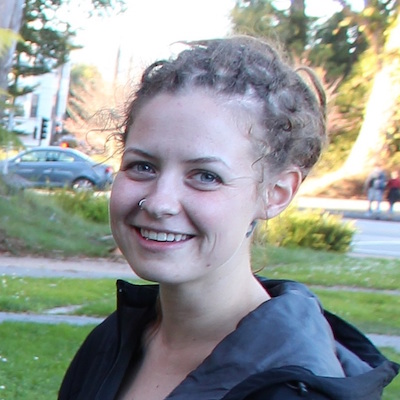
Paige Peterson
MaidSafe

Paige Peterson
MaidSafe
Paige is an advocate for open standards, user privacy and decentralized technologies. She received a BFA practicing experimental art with a strong focus on complexity in nature through interactive installations. Her understanding of natural decentralized systems would map rather eloquently to her growing interest in censorship resistant technologies as she started working for mesh networking startup Open Garden and organizing many bitcoin and cryptocurrency events in San Francisco. In early 2014, Paige met Scotland-based company, MaidSafe who are building a peer-to-peer Internet stemming from similar principles within natural systems which were so attractive to her many years prior and she has been working on various communication efforts full-time with MaidSafe since.
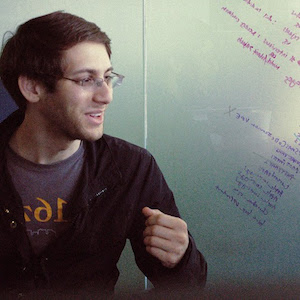
Mek Karpeles
Internet Archive

Mek Karpeles
Internet Archive
Mek (@mekarpeles on GitHub) is a software engineer and citizen of the world dedicated to curating a living map of the universe's knowledge. His philosophies on open access and semantic knowledge systems can be explored at https://michaelkarpeles.com

Constance Choi
COALA, Blockchain Workshops

Constance Choi
COALA, Blockchain Workshops
Constance is one of the principal drivers of global, collaborative, multi-stakeholder initiatives www.blockchainworkshops.org andwww.coala.global) and her ongoing work is intended to foster sound public policy to allow blockchain technologies to fulfill the great social and economic promise of its technical ingenuity. Her company, Seven Advisory, also supports diverse public and private clients in global regulations, licensing and compliance, government advocacy, and strategic market development for blockchain technologies.

Courtney Mumma
Internet Archive

Courtney Mumma
Internet Archive
Courtney joined the Internet Archive in September of 2015 as Program Manager, with a focus on collaborative partnerships, grants management, community development, research initiatives, new services and sustainable innovation in web archives. Her career has been dedicated to building and fortifying the digital cultural heritage preservation sector, helping to build the Archivematica open source digital preservation system and community, as well as several other open source projects.
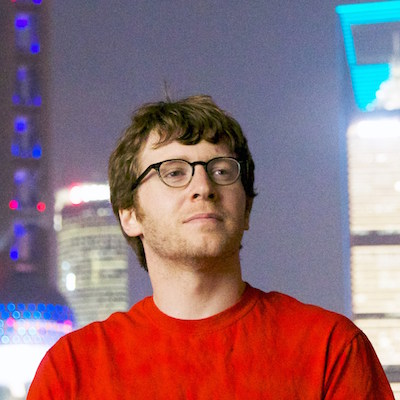
Kyle Drake
Neocities

Kyle Drake
Neocities
Kyle Drake is a tech entrepreneur and the founder of Neocities. Kyle has contributed to numerous Bitcoin projects (including BitcoinJS), and is currently focusing on defining and building the distributed web. Kyle is working on bringing back free web hosting and the creative, independent web. His company Neocities was one of the first sites to implement distributed web tech and we want to expand it to support even more.
| access_time | 3:00-4:15 |
| people |
Greg McMullen
Joachim Lohkamp Allen "Gunner" Gunn John Light Paige Peterson Mek Karpeles Constance Choi Courtney Mumma Kyle Drake |
Break Out Sessions

Greg McMullen
IPDB/BigchainDB

Greg McMullen
IPDB/BigchainDB
Greg is Chief Policy Officer at ascribe.io and BigchainDB.com Before joining ascribe, Greg spent five years as a lawyer with one of Canada’s top class action law firms, where he worked on class actions against Facebook and the Government of Canada alleging privacy violations, and against Teranet alleging copyright infringement. Greg is on the Board of Directors of the British Columbia Civil Liberties Association, and the author of the BCCLA handbook on laptop and smartphone searches at the Canadian border.

Joachim Lohkamp
Jolocom

Joachim Lohkamp
Jolocom
Joachim is an entrepreneur and tech enthusiast. He is obsessed with knowledge, change and innovation. Currently, he is Founder and CEO of Jolocom, a Berlin-based startup building decentralized tools that lets you generate your own digital identity to assist linkage and attribution of data. Besides that Joachim is a connector for Ouishare, currently curating the content for the Decentralization & Blockchain track of the next Ouishare Fest in Paris. Also he organizes GETDcent and is an active member of the Agora Collective in Berlin.

Allen "Gunner" Gunn
Aspiration Tech

Allen "Gunner" Gunn
Aspiration Tech
Allen Gunn is Executive Director of Aspiration www.aspirationtech.org in San Francisco, USA, and works to help NGOs, activists, foundations and software developers make more effective use of technology for social change. Gunner is an active facilitator, contributor, advisor, and/or partner in a number of open projects, including Mozilla, The Tor Project, Humanitarian OpenStreetMap Team, Peer 2 Peer University, Joomla!, CiviCRM, and Creative Commons.

John Light
Bitseed

John Light
Bitseed
John Light is a co-founder of Bitseed, author of Bitcoin: Be Your Own Bank, writer at the okTurtles Foundation, free software advocate and contributor, and advisor to cryptocurrency startups and investors. He organized Blockstack Summit NYC in 2015, founded the Buttonwood SF P2P Cryptocurrency Trading meetup in San Francisco, hosts the P2P Connects Us podcast, and is an avid reader and writer on the topics of peer-to-peer technology, philosophy, and culture. You can find John's website and blockchain ID at www.lightco.in

Paige Peterson
MaidSafe

Paige Peterson
MaidSafe
Paige is an advocate for open standards, user privacy and decentralized technologies. She received a BFA practicing experimental art with a strong focus on complexity in nature through interactive installations. Her understanding of natural decentralized systems would map rather eloquently to her growing interest in censorship resistant technologies as she started working for mesh networking startup Open Garden and organizing many bitcoin and cryptocurrency events in San Francisco. In early 2014, Paige met Scotland-based company, MaidSafe who are building a peer-to-peer Internet stemming from similar principles within natural systems which were so attractive to her many years prior and she has been working on various communication efforts full-time with MaidSafe since.

Mek Karpeles
Internet Archive

Mek Karpeles
Internet Archive
Mek (@mekarpeles on GitHub) is a software engineer and citizen of the world dedicated to curating a living map of the universe's knowledge. His philosophies on open access and semantic knowledge systems can be explored at https://michaelkarpeles.com

Constance Choi
COALA, Blockchain Workshops

Constance Choi
COALA, Blockchain Workshops
Constance is one of the principal drivers of global, collaborative, multi-stakeholder initiatives www.blockchainworkshops.org andwww.coala.global) and her ongoing work is intended to foster sound public policy to allow blockchain technologies to fulfill the great social and economic promise of its technical ingenuity. Her company, Seven Advisory, also supports diverse public and private clients in global regulations, licensing and compliance, government advocacy, and strategic market development for blockchain technologies.

Courtney Mumma
Internet Archive

Courtney Mumma
Internet Archive
Courtney joined the Internet Archive in September of 2015 as Program Manager, with a focus on collaborative partnerships, grants management, community development, research initiatives, new services and sustainable innovation in web archives. Her career has been dedicated to building and fortifying the digital cultural heritage preservation sector, helping to build the Archivematica open source digital preservation system and community, as well as several other open source projects.

Kyle Drake
Neocities

Kyle Drake
Neocities
Kyle Drake is a tech entrepreneur and the founder of Neocities. Kyle has contributed to numerous Bitcoin projects (including BitcoinJS), and is currently focusing on defining and building the distributed web. Kyle is working on bringing back free web hosting and the creative, independent web. His company Neocities was one of the first sites to implement distributed web tech and we want to expand it to support even more.
| access_time | 4:15-4:45 |
| people |
Kevin Marks
Chelsea Barabas Jason Griffey Rick Whitt Ross Schulman Wendy Hanamura Amber Case Cory Doctorow Dan Gillmor |
Report back: where do we go from here?
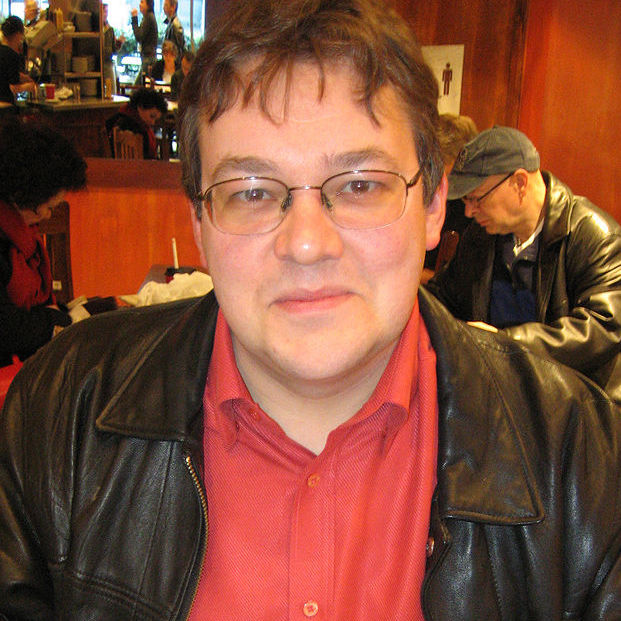
Kevin Marks
Indieweb

Kevin Marks
Indieweb
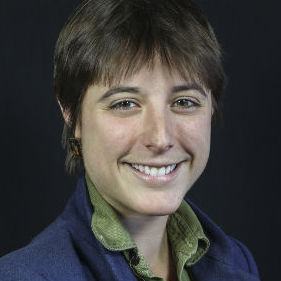
Chelsea Barabas
MIT Center for Civic Media

Chelsea Barabas
MIT Center for Civic Media
Chelsea Barabas is currently the Head of Social Innovation at the Digital Currency Initiative. She recently graduated from MIT, where she researched emerging civil rights issues related to the application of machine learning methods to human resource management practices in the U.S. This work naturally led to Chelsea’s work and interest in digital currencies and distributed ledger technology as a new form of trust infrastructure for the Internet. At the Digital Currency Initiative she is leading the effort to collaborate with hackers, development organizations and civil society groups to build applications on the blockchain that address a broad range of social issues, such as secure identity and consumer-driven data practices, transparency in fiscal governance, and financial inclusion for the unbanked.

Jason Griffey
Berkman Center for Internet and Society

Jason Griffey
Berkman Center for Internet and Society
Jason is interested in topics revolving around how decentralized technologies overlap with access to and freedom of information.

Rick Whitt
Google

Rick Whitt
Google
Rick's day job is serving the Alphabet Access team's core mission of bringing abundant Internet access to the world; as more relevant to the Archive's Decentralized Web event, he is also Google's Senior Policy Director. Rick is responsible for Google's wireline, wireless, and media advocacy before the Federal Communications Commission, other federal agencies, and the U.S. Congress. Most recently he has represented the company's interest in a variety of broadband policy issues, spectrum policy matters, and "unregulation" of VoIP and other Web-based applications.

Ross Schulman
Open Technology Institute

Ross Schulman
Open Technology Institute
Ross Schulman is a co-director of the Cybersecurity Initiative and senior policy counsel at New America’s Open Technology Institute, where he focuses on cybersecurity, encryption, surveillance, and Internet governance. Prior to joining OTI, Ross worked for Google in Mountain View, California. Ross has also worked at the Computer and Communications Industry Association, the Center for Democracy and Technology, and on Capitol Hill for Senators Wyden and Feingold. Ross earned his juris doctor magna cum laude from Washington College of Law at American University and his bachelor’s degree in computer science from Brandeis University.

Wendy Hanamura
Internet Archive

Wendy Hanamura
Internet Archive
As the Director of Partnerships at the Internet Archive, Wendy uses her storytelling skills to share the remarkable stories locked in its collections. Previously, as Chief Digital Officer of KCETLink and Link TV, the national nonprofit media network, Wendy led diverse teams producing television series, apps, a semantic platform for global videos, international film contests and documentaries—all in the service of social change. Wendy began her career in journalism at Time magazine. She's reported and produced television content around the world for CBS, World Monitor Television, NHK (Japanese Broadcasting Corporation), and PBS.
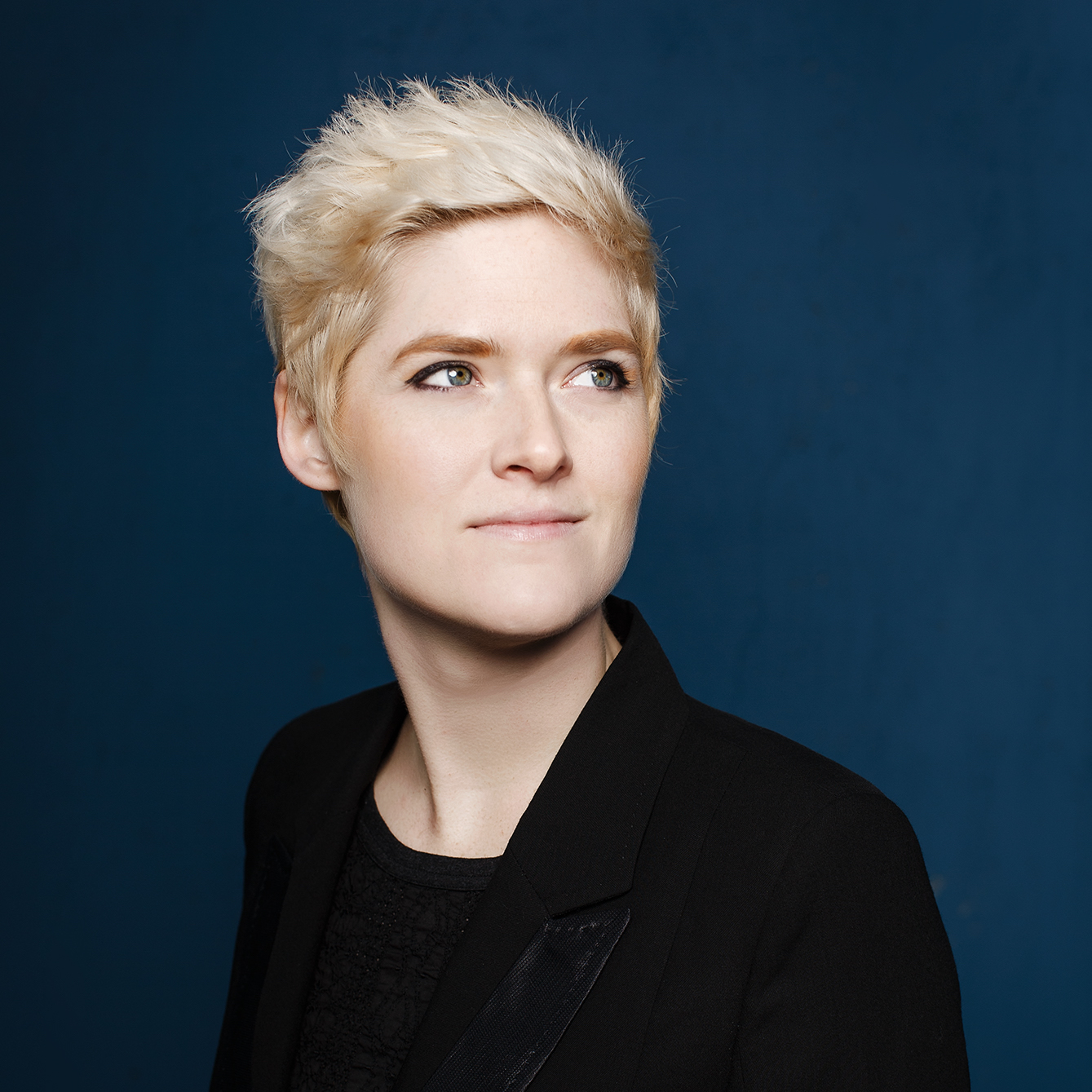
Amber Case
Calm Technology

Amber Case
Calm Technology
Amber Case is a cyborg anthropologist and user experience designer from Portland, Oregon. She studies the interaction between humans and computers and how our relationship with information is changing the way cultures think, act, and understand their worlds. She is the author of An Illustrated Dictionary of Cyborg Anthropology and Calm Technology, as well as the former founder of Geoloqi/Esri.

Cory Doctorow
EFF

Cory Doctorow
EFF
Cory Doctorow craphound.com is a science fiction author, activist, journalist and blogger — the co-editor of Boing Boing boingboing.net and the author of the YA graphic novel IN REAL LIFE, the nonfiction business book INFORMATION DOESN’T WANT TO BE FREE, and young adult novels like HOMELAND, PIRATE CINEMA and LITTLE BROTHER and novels for adults like RAPTURE OF THE NERDS and MAKERS. He works for the Electronic Frontier Foundation and co-founded the UK Open Rights Group. Born in Toronto, Canada, he now lives in Los Angeles.

Dan Gillmor
Author, Tech Journalist

Dan Gillmor
Author, Tech Journalist
Dan Gillmor teaches, writes, and speaks on the development of media and technology. At Arizona State University's Walter Cronkite School of Journalism and Mass Communication, he teaches digital media literacy and promotes entrepreneurship in journalism. He is author of /We the Media: Grassroots Journalism by the People, for the People/ and /Mediactive/. His upcoming project, entitled /Permission Taken/, looks at the increasing control that companies and governments are exerting over the way we use technology and communicate, and how we can take back some of that control. Dan writes a regular column for Slate's Future Tense channel, and is a frequent contributor to Medium's Backchannel technology site. He has co-founded, advised, and served on boards at a number of media-related companies and nonprofits, and speaks widely around the world on media and technology topics. You can learn more about Dan at his homepage: dangillmor.com/about --
| access_time | 4:45-5:15 |
| people |
Brewster Kahle
Tim Berners-Lee |
Reflections of the day: What are the areas we agree on? Where are the places we still need to integrate?

Brewster Kahle
Internet Archive

Brewster Kahle
Internet Archive
A passionate advocate for public Internet access and a successful entrepreneur, Brewster Kahle has spent his career intent on a singular focus: providing Universal Access to All Knowledge. He is the founder and Digital Librarian of the Internet Archive, one of the largest libraries in the world. Soon after graduating from the Massachusetts Institute of Technology where he studied artificial intelligence, Kahle helped found the company Thinking Machines, a supercomputer maker. In 1989, Kahle created the Internet’s first publishing system called Wide Area Information Server (WAIS), later selling the company to AOL. In 1996, Kahle co-founded Alexa Internet, which helps catalog the Web, selling it to Amazon.com in 1999. The Internet Archive, which he founded in 1996, now preserves 25 petabytes of data—the books, Web pages, music, television, and software of our cultural heritage, working with more than 450 library and university partners to create a digital library, accessible to all.

Tim Berners-Lee
World Wide Web Consortium

Tim Berners-Lee
World Wide Web Consortium
Tim invented the World Wide Web in1989 while working at CERN and is subsequently working to ensure it was made freely available to all. Tim is now dedicated to enhancing and protecting the Web’s future. He is a Founding Director of the World Wide Web Foundation, which seeks to ensure the Web serves humanity by establishing it as a global public good and a basic right. He is also Director of the World Wide Web Consortium, a global Web standards organization he founded in 1994 to lead the Web to its full potential. In 2012 he co-founded the Open Data Institute (ODI) which advocates for Open Data in the UK and globally. Sir Tim has advised a number of governments and corporations on ongoing digital strategies. A graduate of Oxford University, Sir Tim presently holds academic posts at the Massachusetts Institute of Technology at CSAIL (Computer Science and Artificial Intelligence Lab), (USA) and the University of Southampton (UK.)
| access_time | 6:00-8:00 |
Dinner Reception in Foyer
| access_time | 8:00-11:00 |
Late night meeting space available
People

Allen "Gunner" Gunn
Aspiration Tech
SF
SF

Allen "Gunner" Gunn
Aspiration Tech
Allen Gunn is Executive Director of Aspiration www.aspirationtech.org in San Francisco, USA, and works to help NGOs, activists, foundations and software developers make more effective use of technology for social change. Gunner is an active facilitator, contributor, advisor, and/or partner in a number of open projects, including Mozilla, The Tor Project, Humanitarian OpenStreetMap Team, Peer 2 Peer University, Joomla!, CiviCRM, and Creative Commons.

Amber Case
Calm Technology
Portland
Portland

Amber Case
Calm Technology
Amber Case is a cyborg anthropologist and user experience designer from Portland, Oregon. She studies the interaction between humans and computers and how our relationship with information is changing the way cultures think, act, and understand their worlds. She is the author of An Illustrated Dictionary of Cyborg Anthropology and Calm Technology, as well as the former founder of Geoloqi/Esri.
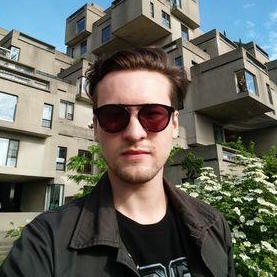
Arkadiy Kukarkin
Mediachain.io
NYC
NYC

Arkadiy Kukarkin
Mediachain.io
Arkadiy is the CTO of Mediachain Labs, the organization that leads and supports development of the open-source Mediachain project, a universal media library. He previously worked on the music aggregator Hype Machine and on GIS at Foursquare.

Ben Trask
StrongLink
North Carolina
North Carolina

Ben Trask
StrongLink
Ben Trask works on content addressing and eventually consistent distributed databases, including StrongLink and Hash-Archive.org

Bram Cohen
BitTorrent: Maelstrom
SF
SF

Bram Cohen
BitTorrent: Maelstrom
Bram Cohen is a computer programmer, best known as the author of the peer-to-peer (P2P) BitTorrent protocol, as well as the first file sharing program to use the protocol, also known as BitTorrent. He is also the co-founder of CodeCon and organizer of the San Francisco Bay Area P2P-hackers meeting, and was the co-author of Codeville.

Brewster Kahle
Internet Archive
SF
SF

Brewster Kahle
Internet Archive
A passionate advocate for public Internet access and a successful entrepreneur, Brewster Kahle has spent his career intent on a singular focus: providing Universal Access to All Knowledge. He is the founder and Digital Librarian of the Internet Archive, one of the largest libraries in the world. Soon after graduating from the Massachusetts Institute of Technology where he studied artificial intelligence, Kahle helped found the company Thinking Machines, a supercomputer maker. In 1989, Kahle created the Internet’s first publishing system called Wide Area Information Server (WAIS), later selling the company to AOL. In 1996, Kahle co-founded Alexa Internet, which helps catalog the Web, selling it to Amazon.com in 1999. The Internet Archive, which he founded in 1996, now preserves 25 petabytes of data—the books, Web pages, music, television, and software of our cultural heritage, working with more than 450 library and university partners to create a digital library, accessible to all.

Brian Behlendorf
Hyperledger Project

Brian Behlendorf
Hyperledger Project
Brian is the Executive Director of the Hyperledger Project at the Linux Foundation. The Hyperledger Project at the Linux Foundation is a collaborative effort to produce Open Source-licensed and publicly-developed blockchain software. Brian was a primary developer of the Apache Web Server and a founding member of the Apache Software Foundation. He has served on the board of the Mozilla Foundation since 2003 and the Electronic Frontier Foundation since 2013. He was founding CTO of CollabNet and CTO of the World Economic Forum. He most recently served as managing director of Mithril Capital Management LLC, a global technology investment firm.
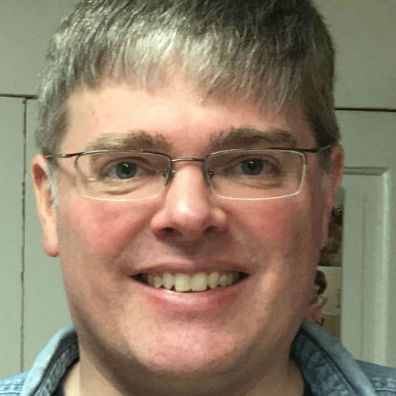
Brian Warner
Tahoe-LAFS/ Magic Wormhole
SF
SF

Brian Warner
Tahoe-LAFS/ Magic Wormhole
Brian builds Tahoe-LAFS, a distributed storage system that safely uses untrusted servers, and Magic Wormhole, the easiest secure file transfer tool ever.

Chelsea Barabas
MIT Center for Civic Media
Cambridge, MA
Cambridge, MA

Chelsea Barabas
MIT Center for Civic Media
Chelsea Barabas is currently the Head of Social Innovation at the Digital Currency Initiative. She recently graduated from MIT, where she researched emerging civil rights issues related to the application of machine learning methods to human resource management practices in the U.S. This work naturally led to Chelsea’s work and interest in digital currencies and distributed ledger technology as a new form of trust infrastructure for the Internet. At the Digital Currency Initiative she is leading the effort to collaborate with hackers, development organizations and civil society groups to build applications on the blockchain that address a broad range of social issues, such as secure identity and consumer-driven data practices, transparency in fiscal governance, and financial inclusion for the unbanked.

Christopher Allen
Blockstream
SF
SF

Christopher Allen
Blockstream
Christopher Allen is an entrepreneur, technologist, and educator who specializes in collaboration, security, and trust. As a pioneer in internet cryptography, he’s initiated cross-industry collaborations and created industry standards that influence the entire internet. He worked with Netscape to develop SSL and co-authored the IETF TLS internet draft that is now at the heart of all secure commerce on the World Wide Web. Though he’s worked within numerous privacy and security sectors, Christopher’s recent emphasis has been on engines of trust such as blockchain, smart contracts, and smart signatures, in particular decentralized self-sovereign identity. Christopher has been a digital civil liberties and human-rights privacy advisor, mobile developer, startup consultant, MBA faculty, and social web strategy consultant. He currently is Principle Architect at Blockstream.

Constance Choi
COALA, Blockchain Workshops

Constance Choi
COALA, Blockchain Workshops
Constance is one of the principal drivers of global, collaborative, multi-stakeholder initiatives www.blockchainworkshops.org andwww.coala.global) and her ongoing work is intended to foster sound public policy to allow blockchain technologies to fulfill the great social and economic promise of its technical ingenuity. Her company, Seven Advisory, also supports diverse public and private clients in global regulations, licensing and compliance, government advocacy, and strategic market development for blockchain technologies.

Cory Doctorow
EFF
LA
LA

Cory Doctorow
EFF
Cory Doctorow craphound.com is a science fiction author, activist, journalist and blogger — the co-editor of Boing Boing boingboing.net and the author of the YA graphic novel IN REAL LIFE, the nonfiction business book INFORMATION DOESN’T WANT TO BE FREE, and young adult novels like HOMELAND, PIRATE CINEMA and LITTLE BROTHER and novels for adults like RAPTURE OF THE NERDS and MAKERS. He works for the Electronic Frontier Foundation and co-founded the UK Open Rights Group. Born in Toronto, Canada, he now lives in Los Angeles.

Courtney Mumma
Internet Archive
SF
SF

Courtney Mumma
Internet Archive
Courtney joined the Internet Archive in September of 2015 as Program Manager, with a focus on collaborative partnerships, grants management, community development, research initiatives, new services and sustainable innovation in web archives. Her career has been dedicated to building and fortifying the digital cultural heritage preservation sector, helping to build the Archivematica open source digital preservation system and community, as well as several other open source projects.

Dan Gillmor
Author, Tech Journalist
SF
SF

Dan Gillmor
Author, Tech Journalist
Dan Gillmor teaches, writes, and speaks on the development of media and technology. At Arizona State University's Walter Cronkite School of Journalism and Mass Communication, he teaches digital media literacy and promotes entrepreneurship in journalism. He is author of /We the Media: Grassroots Journalism by the People, for the People/ and /Mediactive/. His upcoming project, entitled /Permission Taken/, looks at the increasing control that companies and governments are exerting over the way we use technology and communicate, and how we can take back some of that control. Dan writes a regular column for Slate's Future Tense channel, and is a frequent contributor to Medium's Backchannel technology site. He has co-founded, advised, and served on boards at a number of media-related companies and nonprofits, and speaks widely around the world on media and technology topics. You can learn more about Dan at his homepage: dangillmor.com/about --

Dan Whaley
Hypothes.is
SF
SF

Dan Whaley
Hypothes.is
Dan is the founder of Hypothesis. His mission is to bring an open, distributed annotation layer to all knowledge. Dan created the first online travel reservation company on the web (ITN/GetThere) in 1995. He wrote much of the software, launched the business and guided the long term technical and product vision. GetThere went public in 1999 and was sold to Sabre in 2000 with nearly 600 employees while processing approximately 50% of travel transacted online. Dan currently serves as a director of Sauce Labs, the leading open source functional testing company and Getaround, a peer-to-peer car sharing company.

Dan "Blah" Meredith
Open Tech Fund
London
London

Dan "Blah" Meredith
Open Tech Fund
Dan is the Principal Director at Open Technology Fund, which supports open technologies and communities that increase free expression, circumvent censorship, and obstruct repressive surveillance as a way to promote human rights and open societies.

Daniel Roberts
Freenet
SF
SF

Daniel Roberts
Freenet
Recent computer science graduate. Long-time advocate of decentralizing technology, particularly Bitcoin and Namecoin. Volunteers with the Freenet Project. Staunch supporter of freedom of expression and commerce, strong interest in decentralized marketplaces.
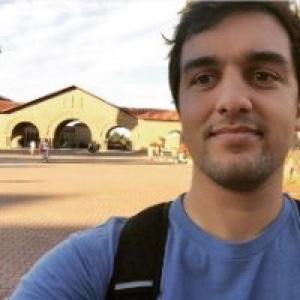
David Dias
IPFS/libp2p
Lisbon, Portugal
Lisbon, Portugal

David Dias
IPFS/libp2p
David is a Peer-to-Peer Software Engineer at Protocol Labs. He is building the InterPlanetary File System, which enables the creation of completely distributed applications. He has also contributed to nodesecurity.io and built several modules that enable developers to check for vulnerabilities. He has a Master of Science in Engineering with major in Peer-to-Peer Networks from Technical University of Lisbon
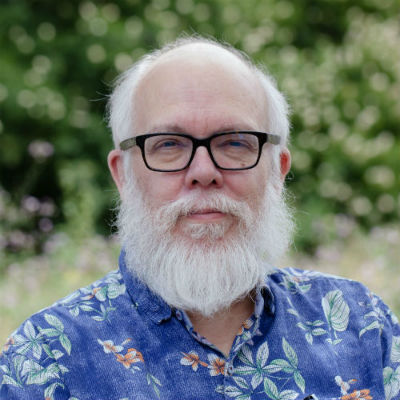
David P. Reed
MIT Media Lab
Needham, MA
Needham, MA

David P. Reed
MIT Media Lab
Dr. David Reed’s past research has focused on designs for societal-scale systems that manage, communicate, and manipulate information shared among people. Dr. Reed co-developed both the Internet design principle known as the “end-to-end argument” and Reed’s Law, which describes the economics of group formation in networks. At the MIT Media Lab, David led work on viral communications, exploring adaptive, scalable, evolving radio network architectures. David was also an HP Fellow at HP Labs. In 2005, he received the IP3 Award for his seminal work on Internet architecture. David has served on the Federal Communication Commission’s Technological Advisory Council and other groups, advising the U.S. government on issues related to future communications technologies. He has consulted widely in the computer industry, has served as a senior research scientist at Interval Research Corporation, and was the vice president and chief scientist for Lotus Development Corporation.
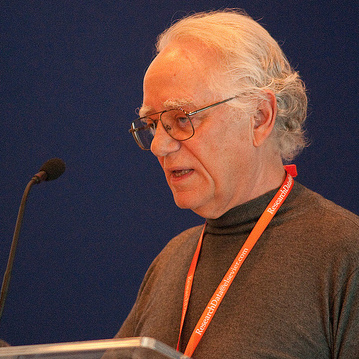
David Rosenthal
LOCKSS Program, Stanford
Palo Alto
Palo Alto

David Rosenthal
LOCKSS Program, Stanford
Dr. David S. H. Rosenthal has been a senior engineer in Silicon Valley for three decades, including as a Distinguished Engineer at Sun Microsystems, and employee #4, Chief Scientist and first sysadmin at Nvidia. For the last 17 years he has been the Chief Scientist of the LOCKSS Program at the Stanford Libraries, working on the problems of keeping digital information safe for the long term. See http://blog.dshr.org/

DC Posch
WebTorrent.io

DC Posch
WebTorrent.io
DC Posch helped write Webtorrent Desktop, a streaming torrent client that connects to both traditional BitTorrent clients and web apps.
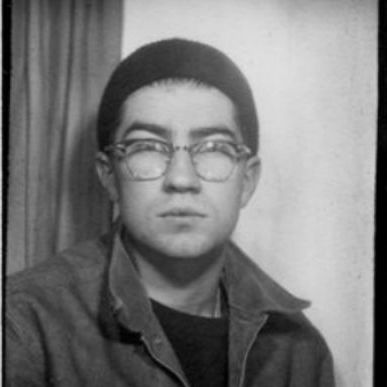
Denis Nazarov
Mediachain.io
NYC
NYC

Denis Nazarov
Mediachain.io
Denis is a Project Lead at Mediachain, a universal media library. Mediachain offers a protocol stack for collaborating on information about creative works. It includes a decentralized datastore based on IPFS, a collaborative data structure inspired by git, and a content identification technology for canonical ID resolution and perceptual metadata retrieval.

Evan Schwartz
Interledger
SF
SF

Evan Schwartz
Interledger
Evan Schwartz is co-inventor of Interledger, the protocol suite for connecting blockchains, payment networks and other digital asset ledgers. Interledger enables payments between parties on different ledgers, meaning developers can build payments into other protocols and apps without being tied to a single payment provider or currency. Interledger is inspired by the designs of IP, TCP, etc and aims to connect the world’s ledgers like the internet protocols connected its information networks.

Feross Aboukhadijeh
Webtorrent
Mountain View, CA
Mountain View, CA

Feross Aboukhadijeh
Webtorrent
Feross currently building WebTorrent, a streaming BitTorrent client for the browser, powered by WebRTC. Before that, he built PeerCDN, a peer-to-peer content delivery network to makes sites faster and cheaper. He is a graduate of Stanford University and has worked at Quora, Facebook, and Intel. In the past, Feross did research in the Stanford human-computer interaction and computer security labs.

Fred Grosskopf
Jolocom
Berlin
Berlin

Fred Grosskopf
Jolocom
Fred is an independent software developer who is currently supporting the Jolocom project. He believes truly free and self-determined communication is a fundamental good that human society needs to overcome the challenges it is facing.

Dr. Gavin Wood
Ethereum/Ethcore
London
London

Dr. Gavin Wood
Ethereum/Ethcore
Before co-founding Ethcore, Gavin was the CTO and co-founder of the Ethereum Project. He is the co-designer of the Ethereum Protocol, the lead programmer on the C++ Ethereum software client, and was the project chief of the IDE, Solidity programming language, and the Swarm and Whisper protocols. He has pushed the state-of-the-art in video analysis tools and programming languages, as well as co-founding several technology start-ups. Gavin has given seminars and presented to numerous audiences around the world from keynotes at regional technology conferences to musings on the future of legal systems. He coined the terms 'web three' and 'alegality'.

Greg Lindahl
Internet Archive
SF
SF

Greg Lindahl
Internet Archive
Greg currently works on search for the Wayback Machine, but caught the distributed computing bug while working on the Legion metacomputing system in the late 1990s. Formerly, he was founder/CTO of a web-scale search engine, which was sold to IBM Watson in 2015. Before that, he was founder/Distinguished Engineer at a supercomputing startup. For fun, he plays a bunch of Renaissance-era musical instruments, and taught himself Italian so that he could reconstruct the dances in 16th century Italian dance manuals.

Greg McMullen
IPDB/BigchainDB
Berlin
Berlin

Greg McMullen
IPDB/BigchainDB
Greg is Chief Policy Officer at ascribe.io and BigchainDB.com Before joining ascribe, Greg spent five years as a lawyer with one of Canada’s top class action law firms, where he worked on class actions against Facebook and the Government of Canada alleging privacy violations, and against Teranet alleging copyright infringement. Greg is on the Board of Directors of the British Columbia Civil Liberties Association, and the author of the BCCLA handbook on laptop and smartphone searches at the Canadian border.
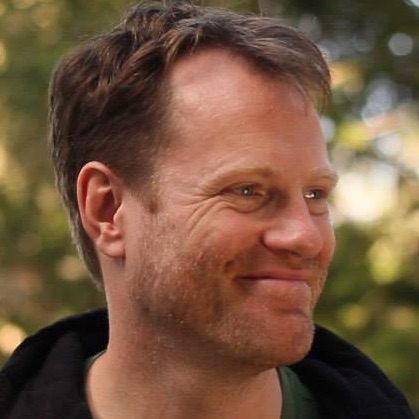
Harlan T Wood
Co-Makery

Harlan T Wood
Co-Makery
Harlan is CTO of comakery.com cofounder of core.network, and architect of the nodesphere.org project. Nodesphere is a global-scale distributed content addressable semantic graph protocol and open source codebase. Its design goals are to create interoperability of heterogeneous data sources, maximize individual ownership and control of data, and enable a new generation of graph visualization browsers. Harlan brings a career of practical software development together with a diverse background including years of deep work with modern mystery schools.

Jason Griffey
Berkman Center for Internet and Society
Cambridge, MA
Cambridge, MA

Jason Griffey
Berkman Center for Internet and Society
Jason is interested in topics revolving around how decentralized technologies overlap with access to and freedom of information.
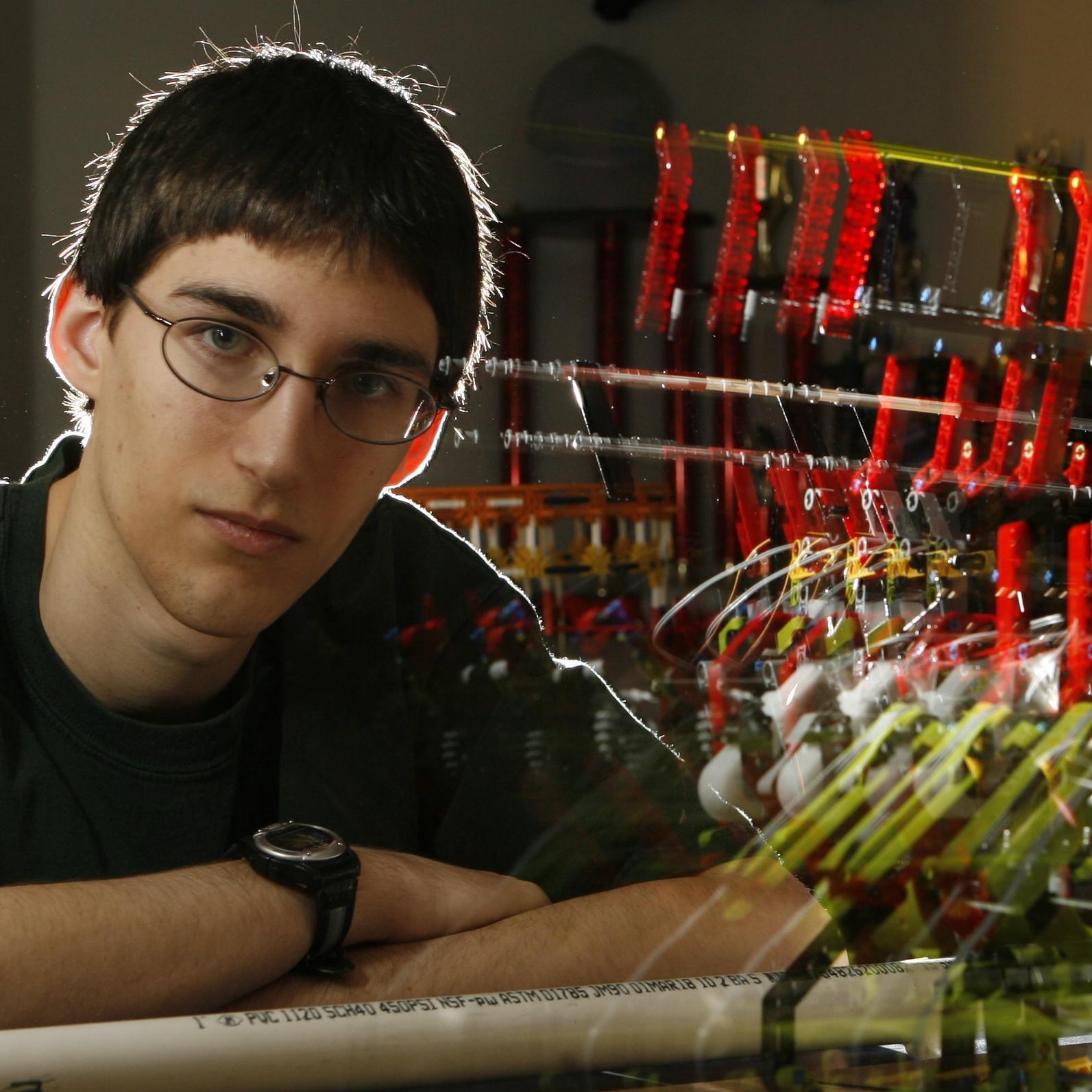
Jeremy Rand
Namecoin
Norman, OK
Norman, OK

Jeremy Rand
Namecoin
Jeremy is Lead Application Engineer and Community Organizer of Namecoin, a naming system (currently used for DNS and identities) which backs authenticity of records with the same algorithms and code used to back financial transactions in Bitcoin. Jeremy wears many hats at Namecoin but spends much of his time working on applications which enhance online privacy.

Jeremy Gillula
EFF--Privacy Badger, Certbot
SF
SF

Jeremy Gillula
EFF--Privacy Badger, Certbot
At a young age Jeremy was sidetracked from his ultimate goal of protecting digital civil liberties by the allure of building and programming robots, which was the focus of his work in college and grad school. Having worked on drones and autonomous cars he is aware of their potential benefits for society, but is also that much more prepared to guard against the dangers they present to privacy and civil liberties. Of course, having worked at EFF for nearly a year Jeremy has covered a wide variety of tech topics, including mobile devices, big data, and net neutrality, just to name a few. A strong believer in never taking the straightforward path to anything, Jeremy went to Caltech for undergrad, then got his PhD in computer science from Stanford University by working on robotics projects with a professor in electrical engineering from UC Berkeley. Privacy Badger is a browser plug-in that algorithmically detects and blocks third party trackers as you browse the web and Certbot is a client for the Let's Encrypt CA (or any other CA that supports the ACME protocol) that automatically gets SSL/TLS certs and installs them to enable HTTPS on your website

Joachim Lohkamp
Jolocom
Berlin
Berlin

Joachim Lohkamp
Jolocom
Joachim is an entrepreneur and tech enthusiast. He is obsessed with knowledge, change and innovation. Currently, he is Founder and CEO of Jolocom, a Berlin-based startup building decentralized tools that lets you generate your own digital identity to assist linkage and attribution of data. Besides that Joachim is a connector for Ouishare, currently curating the content for the Decentralization & Blockchain track of the next Ouishare Fest in Paris. Also he organizes GETDcent and is an active member of the Agora Collective in Berlin.

Joel Dietz
Decentralized Autonomous Society
Palo Alto
Palo Alto

Joel Dietz
Decentralized Autonomous Society
Co-founder of the Decentralized Autonomous Society, EtherCasts, and Swarm, Joel Dietz has been one of the earliest members of the Bay Area Ethereum community and greatest pioneers in the realm of decentralized govenrance. The Decentralized Autonomous Society is a distributed thinktank that also has regular meetups in Palo Alto. It has the broad goal of facilitating new types of governance that are made possible via decentralized technologies. It was founded in the early days of Ethereum.

John Light
Bitseed
SF
SF

John Light
Bitseed
John Light is a co-founder of Bitseed, author of Bitcoin: Be Your Own Bank, writer at the okTurtles Foundation, free software advocate and contributor, and advisor to cryptocurrency startups and investors. He organized Blockstack Summit NYC in 2015, founded the Buttonwood SF P2P Cryptocurrency Trading meetup in San Francisco, hosts the P2P Connects Us podcast, and is an avid reader and writer on the topics of peer-to-peer technology, philosophy, and culture. You can find John's website and blockchain ID at www.lightco.in

Josh Greenberg
Sloan Foundation
NYC
NYC

Josh Greenberg
Sloan Foundation
Joshua M. Greenberg is director of the Alfred P. Sloan Foundation's Digital Information Technology program. He is an active member of the broader digital library and digital humanities communities, serving on a number of advisory boards and program committees, and maintains active research and teaching interests in the history and sociology of information technology, the dynamics of public engagement with expert knowledge, and the methodological implications of new digital technologies for research.

Juan Benet
IPFS
NYC
NYC

Juan Benet
IPFS
Juan Benet created the InterPlanetary File System (IPFS), Filecoin, and other open source protocols. IPFS is a new hypermedia distribution protocol, addressed by content and identities. IPFS enables the creation of completely distributed applications. It aims to make the web faster, safer, and more open. He also works on libp2p — a modular network stack for building peer-to-peer applications. It is in use by many p2p projects, including IPFS. Juan is also the founder of Protocol Labs, a company improving how the internet works. He studied Computer Science (Distributed Systems) at Stanford University. Juan is obsessed with Knowledge, Science, and Technology.
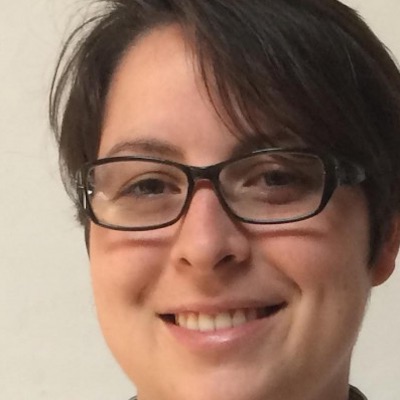
Karissa McKelvey
DAT
Oakland, CA
Oakland, CA

Karissa McKelvey
DAT
Karissa McKelvey is a software developer, writer, inventor, and activist supporting an equitable web. Formerly a research scientist at Indiana University, her work studying online political communication resulted in multiple peer-reviewed papers and press in outlets such as NPR and the Wall Street Journal. In addition to an experienced software and web developer, she has successfully led teams to success with diverse projects throughout her career in academia, non-profits, and industry. In her spare time, she teaches beginning programmers, volunteers her time in social movements, and plays the trumpet.

Kevin Marks
Indieweb
SF
SF

Kevin Marks
Indieweb

Kyle Drake
Neocities
Portland, OR
Portland, OR

Kyle Drake
Neocities
Kyle Drake is a tech entrepreneur and the founder of Neocities. Kyle has contributed to numerous Bitcoin projects (including BitcoinJS), and is currently focusing on defining and building the distributed web. Kyle is working on bringing back free web hosting and the creative, independent web. His company Neocities was one of the first sites to implement distributed web tech and we want to expand it to support even more.

Marek Kotewicz
Ethcore
London
London

Marek Kotewicz
Ethcore
Before joining Ethcore, Marek was a core developer working on the C++ Ethereum software collection. During this time, he designed and implemented the comprehensive end-user API used ubiquitously for Ethereum decentralised applications. Marek is excited about developing groundbreaking technologies. He started following and contributing to Ethereum project at early 2014.
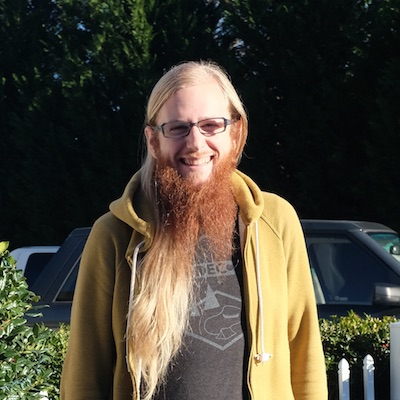
Max Ogden
Dat
Portland, OR
Portland, OR

Max Ogden
Dat
Max is an open source computer programmer who leads the Dat Project, a grant funded project to support distributed data infrastructure for science and government. He also helps organize community events such as the CSV Conference and Donut.js.

Mek Karpeles
Internet Archive
SF
SF

Mek Karpeles
Internet Archive
Mek (@mekarpeles on GitHub) is a software engineer and citizen of the world dedicated to curating a living map of the universe's knowledge. His philosophies on open access and semantic knowledge systems can be explored at https://michaelkarpeles.com

Michael Grube
Freenet
Detroit
Detroit

Michael Grube
Freenet
Michael Grube is a software developer and volunteer contributor to the Freenet Project. He has investigated scalability and security issues in Freenet's Small World Routing algorithm. He has been involved in other decentralized web projects including SpiderCache, which is a distributed web cache designed for low-bandwidth environments. Currently, he is continuing research on Small World Routing.

Michael Stebbins
Arnold Foundation
Washington DC
Washington DC

Michael Stebbins
Arnold Foundation
Michael is responsible for identifying and pursuing opportunities for philanthropic investment in science and technology. He joined the Arnold Foundation after serving as the assistant director for biotechnology at the White House Office of Science and Technology Policy for six years. At the White House, Michael was responsible for developing and driving initiatives in life sciences research, including the Administration’s efforts focused on improving veterans’ mental health, combating antibiotic resistance, increasing access to federally funded scientific research results, restoring pollinator health, and reforming the regulatory system for biotechnology products.

Mike Perry
TOR
SF
SF

Mike Perry
TOR
Mike Perry serves as the Senior Developer dedicated to coordinating technical details between the Tor Browser and Core Tor teams. Mike has done work for The Tor Project for the past 10 years, leading the Tor Browser team for 4 of those years. Mike has also worked on several other areas of Tor, including network path selection, path security, load balancing, and latency improvements. Mike is currently spending time working on padding for traffic analysis, hidden service path selections, and prototypes of new projects that use Tor.

Mitchell Baker
Mozilla Foundation & Corp, Executive Chairperson
SF
SF

Mitchell Baker
Mozilla Foundation & Corp, Executive Chairperson
As the leader of the Mozilla Project, Mitchell Baker is responsible for organizing and motivating a massive, worldwide, collective of employees and volunteers who are breathing new life into the Internet with the Firefox Web browser, Firefox OS and other Mozilla products. Mitchell continues her commitment to an open, innovative Web and the infinite possibilities it presents.
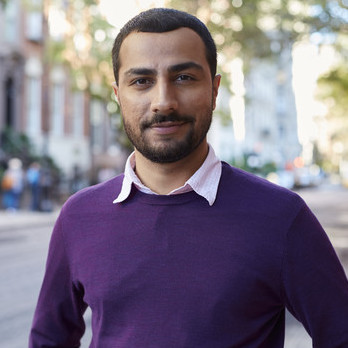
Muneeb Ali
Blockstack
NYC, Princeton
NYC, Princeton

Muneeb Ali
Blockstack
Muneeb Ali is the Co-founder and CTO of Blockstack Labs. Blockstack is an application stack for decentralized, server-less apps secured by the blockchain. Muneeb received his Masters in Computer Science from Princeton University and did PhD-level research in distributed systems at Princeton working in the systems group and at PlanetLab—the world’s first and largest cloud computing testbed. Muneeb was awarded a J. William Fulbright Fellowship and a Princeton Graduate Fellowship. He has built a wide range of production systems and published research papers with over 800 citations.

Nicola Greco
MIT's Computer Science and Artificial Intelligence Lab, Solid
Cambridge, MA
Cambridge, MA

Nicola Greco
MIT's Computer Science and Artificial Intelligence Lab, Solid
Nicola Greco is a PhD student at MIT CSAIL and Fellow at the Berkman Center. His work focuses on decentralizing the web: interoperable clouds, decentralized identifiers, authenticated/content-addressable web.

Noah Swartz
EFF--Privacy Badger, Certbot
SF
SF

Noah Swartz
EFF--Privacy Badger, Certbot
Noah is a Staff Technologist on the Tech Projects team. He works on the various software the EFF produces and maintains, including but not limited to Privacy Badger. Before joining EFF Noah was a researcher at the MIT Media Lab as well as a technomancer and free software/culture advocate. An avid game enthusiast, Noah was previously a professional Magic: the Gathering player, and has ascended in nethack four times. He lives in the Mission District of San Francisco with his family of twitterbots.

Paige Peterson
MaidSafe
Boston
Boston

Paige Peterson
MaidSafe
Paige is an advocate for open standards, user privacy and decentralized technologies. She received a BFA practicing experimental art with a strong focus on complexity in nature through interactive installations. Her understanding of natural decentralized systems would map rather eloquently to her growing interest in censorship resistant technologies as she started working for mesh networking startup Open Garden and organizing many bitcoin and cryptocurrency events in San Francisco. In early 2014, Paige met Scotland-based company, MaidSafe who are building a peer-to-peer Internet stemming from similar principles within natural systems which were so attractive to her many years prior and she has been working on various communication efforts full-time with MaidSafe since.

Patrick Ryan
Google
Mountain View
Mountain View

Patrick Ryan
Google
Patrick Ryan is Public Policy & Government Relations Counsel for Free Expression and International Relations at Google. Before joining the International Relations team, Patrick led the global policy strategy for Google’s cloud computing platform and coordinates Google’s engagement in international policy matters at the Internet Governance Forum and other fora. Prior to joining Google, Patrick was a consultant and lawyer with more than 15 years of experience in the telecommunications sector.
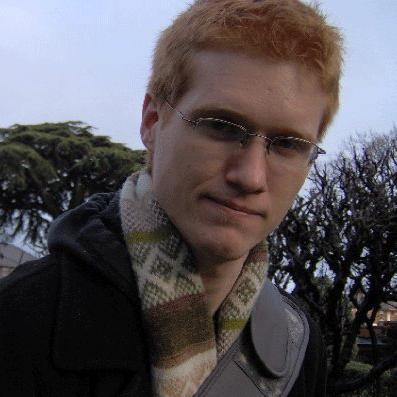
Paul Frazee
Patchwork
Austin, TX
Austin, TX

Paul Frazee
Patchwork
Paul Frazee works on decentralized identity, Web-of-Trust, and bringing PGP into the 21st century.

Peter Van Garderen
Artefactual
Vancouver
Vancouver

Peter Van Garderen
Artefactual
Peter's background is open-source archives systems and he is currently working on identity and provenance recordkeeping for decentralized notarization services which he sees as the critical first building block towards trustworthy Decentralized Autonomous Collections

Primavera De Filippi
Backfeed/COALA
Paris
Paris

Primavera De Filippi
Backfeed/COALA
Primavera is a permanent researcher at the CERSA / CNRS / Université Paris II as well as a faculty associate at the Berkman Center for Internet & Society at Harvard Law School, where she is investigating the concept of governance-by-design as it relates to distributed online architectures, such as Bitcoin, Ethereum, et cetera.
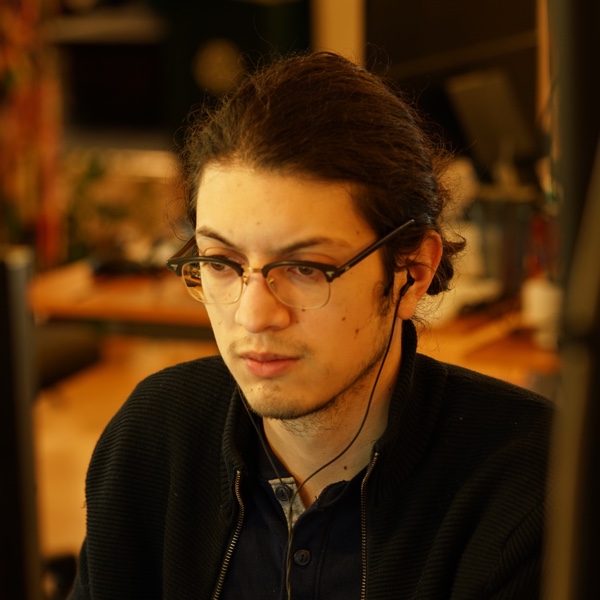
Richard Caceres
Internet Archive
SF
SF

Richard Caceres
Internet Archive
Richard is an engineer at the Internet Archive and is an active member in the indie and decentralized web communities. He has developed open source apps for Sandstorm, and is also a member of Archive Lab.

Rick Whitt
Google
Mountain View
Mountain View

Rick Whitt
Google
Rick's day job is serving the Alphabet Access team's core mission of bringing abundant Internet access to the world; as more relevant to the Archive's Decentralized Web event, he is also Google's Senior Policy Director. Rick is responsible for Google's wireline, wireless, and media advocacy before the Federal Communications Commission, other federal agencies, and the U.S. Congress. Most recently he has represented the company's interest in a variety of broadband policy issues, spectrum policy matters, and "unregulation" of VoIP and other Web-based applications.
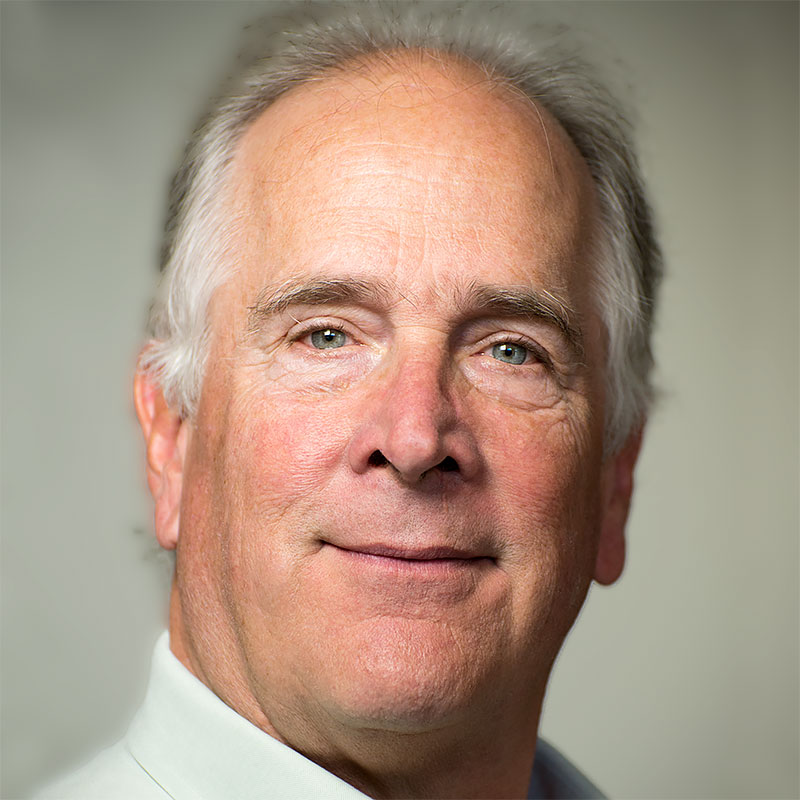
Roger Macdonald
Internet Archive
SF
SF

Roger Macdonald
Internet Archive
Roger joined the Internet Archive to help create an open digital public library of TV news, providing a means to thoughtfully reflect upon the most pervasive and persuasive medium of our time. He spent the previous eleven years helping to manage the nation's largest independent noncommercial TV network, Link TV. Prior to co-founding the network devoted to global news and culture in1999, Roger helped create and manage several other organizations engaged in addressing international challenges, often through media, including the Gorbachev Foundation.

Ross Schulman
Open Technology Institute
DC
DC

Ross Schulman
Open Technology Institute
Ross Schulman is a co-director of the Cybersecurity Initiative and senior policy counsel at New America’s Open Technology Institute, where he focuses on cybersecurity, encryption, surveillance, and Internet governance. Prior to joining OTI, Ross worked for Google in Mountain View, California. Ross has also worked at the Computer and Communications Industry Association, the Center for Democracy and Technology, and on Capitol Hill for Senators Wyden and Feingold. Ross earned his juris doctor magna cum laude from Washington College of Law at American University and his bachelor’s degree in computer science from Brandeis University.

Ryan X. Charles
Yours
SF
SF

Ryan X. Charles
Yours
Ryan X. is starting his own bitcoin-based social media company, Yours.
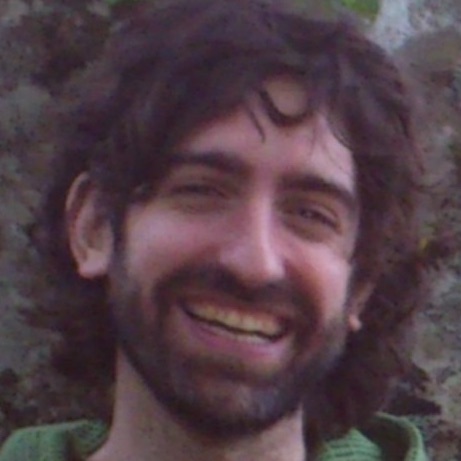
Samer Hassan
Berkman Center / P2Pvalue
Cambridge, MA
Cambridge, MA

Samer Hassan
Berkman Center / P2Pvalue
Samer Hassan (PhD) is an activist and researcher, Fellow at the Berkman Center for Internet & Society (Harvard University) and Assistant Professor at the Universidad Complutense de Madrid (Spain). He has carried out interdisciplinary research in decentralized systems, social simulation and artificial intelligence resulting in 45 publications. He's UCM Principal Investigator in the EU-funded P2Pvalue project on building decentralized software for Commons-based peer production communities.

Sean White
Mozilla Foundation
SF
SF

Sean White
Mozilla Foundation
Sean White is a high-tech executive, entrepreneur, inventor, and musician who has spent his career leading innovative development of the experiences, systems, and technologies that enable creative expression, connect us to each other, and enhance our understanding of the world around us. He was most recently the founder and CEO of BrightSky Labs, a company he incubated while an EIR at Greylock Partners, and is currently teaching CS377m: HCI Issues in Mixed & Augmented Reality at Stanford University.
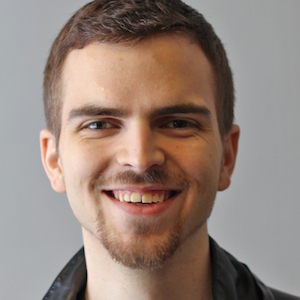
Stefan Thomas
Interledger
SF
SF

Stefan Thomas
Interledger
Stefan Thomas wants to live in a world where currency moves as frictionlessly as information. As CTO of Ripple, he is helping to build an Internet protocol that does just that. Stefan is one of the co-creators of the Interledger Protocol. The Interledger Protocol is a protocol suite for connecting blockchains and other ledgers. It’s a neutral protocol for payments across different currencies and payment systems.

Tamas Kocsis
Zeronet
Budapest
Budapest

Tamas Kocsis
Zeronet
Tamas is a self-taught web builder from Hungary who has been in love with the Internet since the dial-up era. He is the founder and programmer of ZeroNet https://zeronet.io which allows you to create decentralized, P2P and real-time updated websites using Bitcoin cryptography and the BitTorrent network.

Tim Berners-Lee
World Wide Web Consortium

Tim Berners-Lee
World Wide Web Consortium
Tim invented the World Wide Web in1989 while working at CERN and is subsequently working to ensure it was made freely available to all. Tim is now dedicated to enhancing and protecting the Web’s future. He is a Founding Director of the World Wide Web Foundation, which seeks to ensure the Web serves humanity by establishing it as a global public good and a basic right. He is also Director of the World Wide Web Consortium, a global Web standards organization he founded in 1994 to lead the Web to its full potential. In 2012 he co-founded the Open Data Institute (ODI) which advocates for Open Data in the UK and globally. Sir Tim has advised a number of governments and corporations on ongoing digital strategies. A graduate of Oxford University, Sir Tim presently holds academic posts at the Massachusetts Institute of Technology at CSAIL (Computer Science and Artificial Intelligence Lab), (USA) and the University of Southampton (UK.)
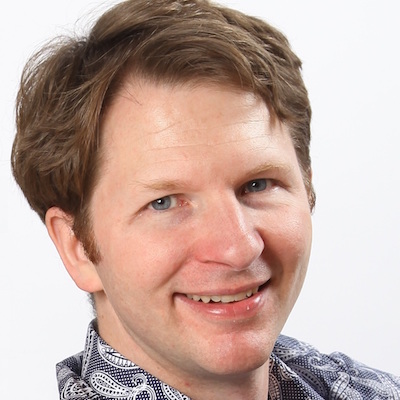
Trent McConaghy
IPDB/BigchainDB
Berlin
Berlin

Trent McConaghy
IPDB/BigchainDB
Trent McConaghy is co-inventor of the world's first planetary-scale blockchain database, BigchainDB, and the creators-first IP service, ascribe. Previously, he worked on AI for designing computer chips to help drive Moore's Law.

Van Jacobson
Google, Named Data Networking Project (NDN)
Mountain View
Mountain View

Van Jacobson
Google, Named Data Networking Project (NDN)
Van Jacobson’s algorithms for the Transmission Control Protocol (TCP) helped solve the problem of congestion and are used in over 90% of Internet hosts today. He is renowned for his pioneering achievements in network performance and scaling. Widely credited with enabling the Internet to expand in size and support increasing speed demands, he helped the Internet survive a major traffic surge (1988-89) without collapsing. - See more at: http://www.internethalloffame.org/inductees/van-jacobson#sthash.iIwDLMAe.dpuf
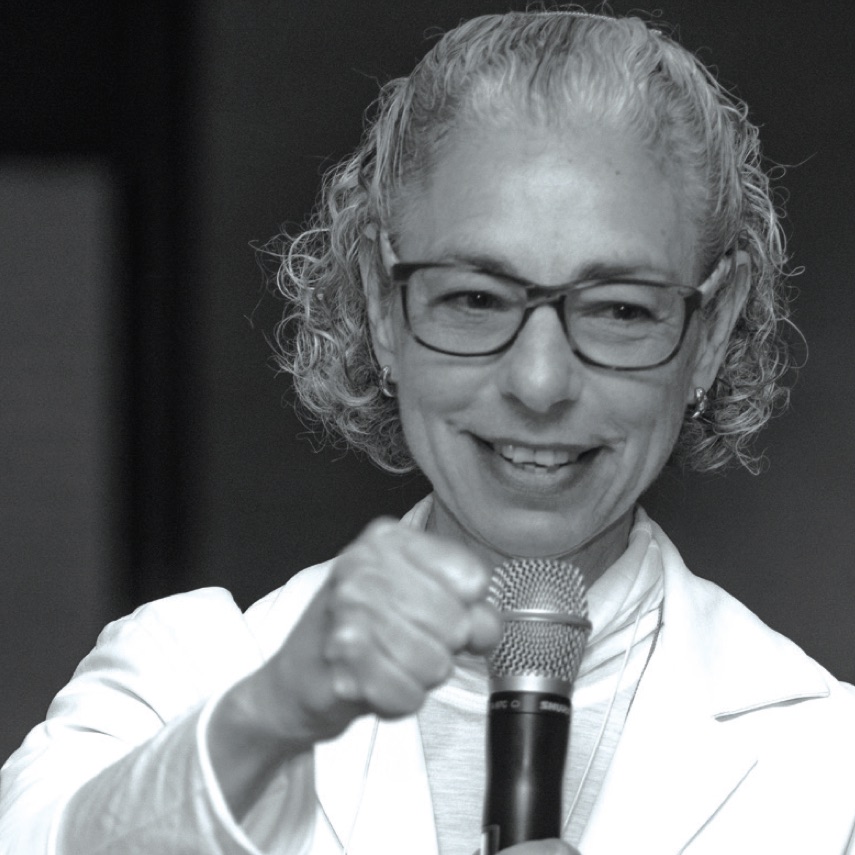
Vicky Reich
LOCKSS Program, Stanford
Palo Alto
Palo Alto

Vicky Reich
LOCKSS Program, Stanford
Vicky Reich is Executive Director of the LOCKSS Program, Stanford University Library, www.lockss.org) The LOCKSS Program empowers local and national communities to ensure perpetual access to a wide range of materials, including for-fee and open access books and journals, government documents, etc.. Vicky has extensive library experience, having held positions at Stanford University Libraries, the U.S. National Agricultural Library, the Library of Congress and the University of Michigan. She was also instrumental in founding the CLOCKSS Archive www.clockss.org and HighWire Press.

Vlad Zamfir
Ethereum
London
London

Vlad Zamfir
Ethereum
Vlad Zamfir is a researcher and Blockchain architect at Ethereum, focused on blockchain efficiency, security, scaling, and on the ethics of decentralization.

Wendy Hanamura
Internet Archive
SF
SF

Wendy Hanamura
Internet Archive
As the Director of Partnerships at the Internet Archive, Wendy uses her storytelling skills to share the remarkable stories locked in its collections. Previously, as Chief Digital Officer of KCETLink and Link TV, the national nonprofit media network, Wendy led diverse teams producing television series, apps, a semantic platform for global videos, international film contests and documentaries—all in the service of social change. Wendy began her career in journalism at Time magazine. She's reported and produced television content around the world for CBS, World Monitor Television, NHK (Japanese Broadcasting Corporation), and PBS.

Zooko Wilcox
Zcash/ Tahoe-LAFS
Colorado
Colorado

Zooko Wilcox
Zcash/ Tahoe-LAFS
Zooko has more than 20 years of experience in open, decentralized systems, cryptography and information security, and startups. He is recognized for his work on DigiCash, Mojo Nation, ZRTP, “Zooko's Triangle”, Tahoe-LAFS, BLAKE2, and SPHINCS. He is also the Founder and CEO of Least Authority. He sometimes blogs about health science. He tweets a lot. Zcash is a decentralized and open source cryptocurrency that aims to set a new standard for privacy through the use of groundbreaking cryptography.

Jim Nelson
Internet Archive
SF
SF

Jim Nelson
Internet Archive
Jim Nelson is a Cluster Operations Engineer at the Internet Archive. Prior to joining the Archive, he was lead engineer and Executive Director of the Yorba Foundation, an open-source nonprofit. In the past he's worked at XTree Company, Starlight Networks, and a whole lot of Silicon Valley startups you've probably never heard of. Jim’s novel Bridge Daughter is now available from Kindle Press.
Science Fair
Take a deeper dive into the projects, protocols, and products that our speakers are working on. In SCIENCE FAIR, our panelists explain some of the decentralized projects now being developed.
#RebootingWebOfTrust
At each Rebooting the Web of Trust event we collaboratively create white papers and specifications on topics that will have the greatest impact on the future of self-sovereign identity.
WHAT IS WEB-OF-TRUST
The Web of Trust is a buzzword for a new model of decentralized identity. It’s a phrase that dates back almost twenty-five years, the classic definition derives from PGP. But some use it as a term to include identity authentication & verification, certificate... Read more.
The Web of Trust is a buzzword for a new model of decentralized identity. It’s a phrase that dates back almost twenty-five years, the classic definition derives from PGP. But some use it as a term to include identity authentication & verification, certificate... Read more.
#RebootingWebOfTrust
At each Rebooting the Web of Trust event we collaboratively create white papers and specifications on topics that will have the greatest impact on the future of self-sovereign identity.
WHAT IS WEB-OF-TRUST
The Web of Trust is a buzzword for a new model of decentralized identity. It’s a phrase that dates back almost twenty-five years, the classic definition derives from PGP. But some use it as a term to include identity authentication & verification, certificate validation, and reputation assessment, while the vibrant blockchain community is also drawing new attention to the concept we aim to reboot it.
PAST EVENTS
All documentation for the event is open source on GitHub
• 2016 Website http://www.weboftrust.info/event-2016-ny and Repository https://github.com/WebOfTrustInfo/ID2020DesignWorkshop
• 2015 Website http://www.weboftrust.info/event-2015-sf and Repository https://github.com/WebOfTrustInfo/rebooting-the-web-of-trust
FUTURE GOALS
The goal of each Rebooting the Web of Trust event is to collaboratively generate white papers on topics that will have the greatest impact on the future, and align with the identity needs of the world.
More details on the upcoming September 2016 are coming soon.
The complete documentation of the previous event is available in the github repository, including photos, drafts, and graphic output.
The Web of Trust is a buzzword for a new model of decentralized identity. It’s a phrase that dates back almost twenty-five years, the classic definition derives from PGP. But some use it as a term to include identity authentication & verification, certificate validation, and reputation assessment, while the vibrant blockchain community is also drawing new attention to the concept we aim to reboot it.
PAST EVENTS
All documentation for the event is open source on GitHub
• 2016 Website http://www.weboftrust.info/event-2016-ny and Repository https://github.com/WebOfTrustInfo/ID2020DesignWorkshop
• 2015 Website http://www.weboftrust.info/event-2015-sf and Repository https://github.com/WebOfTrustInfo/rebooting-the-web-of-trust
FUTURE GOALS
The goal of each Rebooting the Web of Trust event is to collaboratively generate white papers on topics that will have the greatest impact on the future, and align with the identity needs of the world.
More details on the upcoming September 2016 are coming soon.
The complete documentation of the previous event is available in the github repository, including photos, drafts, and graphic output.

Christopher Allen
Blockstream

Christopher Allen
Blockstream
Christopher Allen is an entrepreneur, technologist, and educator who specializes in collaboration, security, and trust. As a pioneer in internet cryptography, he’s initiated cross-industry collaborations and created industry standards that influence the entire internet. He worked with Netscape to develop SSL and co-authored the IETF TLS internet draft that is now at the heart of all secure commerce on the World Wide Web. Though he’s worked within numerous privacy and security sectors, Christopher’s recent emphasis has been on engines of trust such as blockchain, smart contracts, and smart signatures, in particular decentralized self-sovereign identity. Christopher has been a digital civil liberties and human-rights privacy advisor, mobile developer, startup consultant, MBA faculty, and social web strategy consultant. He currently is Principle Architect at Blockstream.
Blockstack
To build a new, secure Web.
Blockstack is an application stack for decentralized, server-less apps secured by the blockchain. Blockstack provides services for naming, identity, authentication, and storage without trusting any third-parties. Team Members: Muneeb Ali, Ryan Shea, Jude Nelson, Guy Lepage
Blockstack
To build a new, secure Web.
Blockstack is an application stack for decentralized, server-less apps secured by the blockchain. Blockstack provides services for naming, identity, authentication, and storage without trusting any third-parties. Team Members: Muneeb Ali, Ryan Shea, Jude Nelson, Guy Lepage

Muneeb Ali
Blockstack

Muneeb Ali
Blockstack
Muneeb Ali is the Co-founder and CTO of Blockstack Labs. Blockstack is an application stack for decentralized, server-less apps secured by the blockchain. Muneeb received his Masters in Computer Science from Princeton University and did PhD-level research in distributed systems at Princeton working in the systems group and at PlanetLab—the world’s first and largest cloud computing testbed. Muneeb was awarded a J. William Fulbright Fellowship and a Princeton Graduate Fellowship. He has built a wide range of production systems and published research papers with over 800 citations.
CoMakery
CoMakery allows communities of creators to share equity as easily as using currency
CoMakery is decentralized platform that rewards project creators for collaborating with each other. We enable tracking and trading of sweat equity with Ethereum tokens. We are integrating with DAOs and cryptocurrency exchanges. We are evolving new models for helping decentralizing collaborative... Read more.
CoMakery
CoMakery allows communities of creators to share equity as easily as using currency
CoMakery is decentralized platform that rewards project creators for collaborating with each other. We enable tracking and trading of sweat equity with Ethereum tokens. We are integrating with DAOs and cryptocurrency exchanges. We are evolving new models for helping decentralizing collaborative businesses thrive.
Harlan T Wood, Noah Thorp
Harlan T Wood, Noah Thorp

Harlan T Wood
Co-Makery

Harlan T Wood
Co-Makery
Harlan is CTO of comakery.com cofounder of core.network, and architect of the nodesphere.org project. Nodesphere is a global-scale distributed content addressable semantic graph protocol and open source codebase. Its design goals are to create interoperability of heterogeneous data sources, maximize individual ownership and control of data, and enable a new generation of graph visualization browsers. Harlan brings a career of practical software development together with a diverse background including years of deep work with modern mystery schools.
Dat Project
Dat is an open source, decentralized data tool for distributing datasets small and large.
Dat is an open source, decentralized data-sharing tool for versioning and syncing data. Inspired by the best parts of Git and BitTorrent, Dat shares data through a free, redundant network that assures the integrity and openness of data. It uses cryptographic fingerprinting to generate a unique... Read more.
Dat Project
Dat is an open source, decentralized data tool for distributing datasets small and large.
Dat is an open source, decentralized data-sharing tool for versioning and syncing data. Inspired by the best parts of Git and BitTorrent, Dat shares data through a free, redundant network that assures the integrity and openness of data. It uses cryptographic fingerprinting to generate a unique global link for the data. Dat includes a desktop application, command line tool, and client libraries in Python and R. Team Members: Max Ogden, Mathias Buus, Karissa McKelvey, Julian Gruber, Lauren Garcia, Kriesse Schneider, Joe Hand

Max Ogden
The Dat Project

Max Ogden
The Dat Project
Max Ogden is a software developer and founder of The Dat Project (http://www.wired.com/2014/08/dat/)">href="http://www.wired.com/2014/08/dat/">http://www.wired.com/2014/08/dat/) a grant funded software development non-profit. Max has lead the Dat team to work with data scientists, journalists and civic technologists to develop better tools for sharing datasets online. Prior to starting the Dat Project, Max was a Code for America fellow.

Karissa McKelvey
The Dat Project

Karissa McKelvey
The Dat Project
Karissa McKelvey is a software developer, writer, inventor, and activist supporting an equitable web. Formerly a research scientist at Indiana University, her work studying online political communication resulted in multiple peer-reviewed papers and press in outlets such as NPR and the Wall Street Journal. In addition to an experienced software and web developer, she has successfully led teams to success with diverse projects throughout her career in academia, non-profits, and industry. In her spare time, she teaches beginning programmers, volunteers her time in social movements, and plays the trumpet.

Lauren Garcia
LevelNews.org

Lauren Garcia
LevelNews.org
Lauren Garcia is a software developer whose interest in independent news and frustration with digital distribution systems led her to develop LevelNews.org an independent news aggregator for the open web LevelNews.org is currently live but under construction)
Decentralization & Libraries
To help make connections between decentralized projects and potential civic partners in the form of libraries.
One of the challenges with decentralized projects is to find users to scale or stabilize the network. Libraries could provide stable, reliable platforms for decentralized projects that support the overall network and as entry points for community users.
This is brand new, and a new idea... Read more.
This is brand new, and a new idea... Read more.
Decentralization & Libraries
To help make connections between decentralized projects and potential civic partners in the form of libraries.
One of the challenges with decentralized projects is to find users to scale or stabilize the network. Libraries could provide stable, reliable platforms for decentralized projects that support the overall network and as entry points for community users.
This is brand new, and a new idea for libraries...my goal is to find partners to move the idea forward over the next year.
This is brand new, and a new idea for libraries...my goal is to find partners to move the idea forward over the next year.

Jason Griffey
Berkman Center for Internet and Society

Jason Griffey
Berkman Center for Internet and Society
Jason is interested in topics revolving around how decentralized technologies overlap with access to and freedom of information.
Decentralized Autonomous Society
Enabling autonomy via decentralized technology
The Decentralized Autonomous Society is a distributed thinktank that also has regular meetups in Palo Alto. It has the broad goal of facilitating new types of governance that are made possible via decentralized technologies. It was founded in the early days of Ethereum. Team Members: Joel Dietz,... Read more.
Decentralized Autonomous Society
Enabling autonomy via decentralized technology
The Decentralized Autonomous Society is a distributed thinktank that also has regular meetups in Palo Alto. It has the broad goal of facilitating new types of governance that are made possible via decentralized technologies. It was founded in the early days of Ethereum. Team Members: Joel Dietz, Philip Saunders, Moritz Bierling, Tristan Roberts, Dakota Kaiser

Joel Dietz
Decentralized Autonomous Society

Joel Dietz
Decentralized Autonomous Society
Co-founder of the Decentralized Autonomous Society, EtherCasts, and Swarm, Joel Dietz has been one of the earliest members of the Bay Area Ethereum community and greatest pioneers in the realm of decentralized govenrance. The Decentralized Autonomous Society is a distributed thinktank that also has regular meetups in Palo Alto. It has the broad goal of facilitating new types of governance that are made possible via decentralized technologies. It was founded in the early days of Ethereum.
ETH CORE LIMITED
To enable businesses and organisations to capitalise on blockchain technology and benefit from the new opportunities it presents.
Ethcore Ltd. was created to undertake and further exploit the use of blockchain technology for commercial, financial and institutional purposes. Its mission is to enable businesses and organisations to capitalise on blockchain technology and benefit from the new opportunities it presents. It was... Read more.
ETH CORE LIMITED
To enable businesses and organisations to capitalise on blockchain technology and benefit from the new opportunities it presents.
Ethcore Ltd. was created to undertake and further exploit the use of blockchain technology for commercial, financial and institutional purposes. Its mission is to enable businesses and organisations to capitalise on blockchain technology and benefit from the new opportunities it presents. It was founded by many of the core technical and operational staff of the Ethereum Foundation, which is the non-profit that created the Ethereum Platform. Ethcore’s team also covers legal, finances and business development expertise.
We're creating the world's fastest and lightest Ethereum client. Written in the sophisticated, cutting-edge Rust language, we can push the limits of reliability, performance and code clarity all at once. Currently available for Ubuntu/Debian, OSX and as a Docker container, Parity can be used to sync with both Homestead and Morden networks, can mine when used with ethminer, can power a Web3 Javascript console when used with eth attach and can be used for Ethereum JSONRPC applications such as a netstats client.
To allow users to get our latest improvements as soon as possible, we aim to make our releases at a roughly 6-week cycle. We maintain three different releases at any one time; the stable release which is our most mature and tested software. The beta release has additional features and better performance but may yet have quirks and issues to be fixed. Finally, the nightly release is our cutting-edge software build but comes with a strong caveat against using it for managing anything of value. Team Members: Dr. Gavin Wood, Dr. Jutta Steiner, Kenneth Kappler, TJ Saw, Dr. Aeron Buchanan, Arkadiy Paronyan, Marek Kotewicz, Konstantin Kudryavtsev, Tomasz Drwięga, Nikolay Volf
We're creating the world's fastest and lightest Ethereum client. Written in the sophisticated, cutting-edge Rust language, we can push the limits of reliability, performance and code clarity all at once. Currently available for Ubuntu/Debian, OSX and as a Docker container, Parity can be used to sync with both Homestead and Morden networks, can mine when used with ethminer, can power a Web3 Javascript console when used with eth attach and can be used for Ethereum JSONRPC applications such as a netstats client.
To allow users to get our latest improvements as soon as possible, we aim to make our releases at a roughly 6-week cycle. We maintain three different releases at any one time; the stable release which is our most mature and tested software. The beta release has additional features and better performance but may yet have quirks and issues to be fixed. Finally, the nightly release is our cutting-edge software build but comes with a strong caveat against using it for managing anything of value. Team Members: Dr. Gavin Wood, Dr. Jutta Steiner, Kenneth Kappler, TJ Saw, Dr. Aeron Buchanan, Arkadiy Paronyan, Marek Kotewicz, Konstantin Kudryavtsev, Tomasz Drwięga, Nikolay Volf

Dr. Gavin Wood
Ethereum

Dr. Gavin Wood
Ethereum
Before co-founding Ethcore, Gavin was the CTO and co-founder of the Ethereum Project. He is the co-designer of the Ethereum Protocol, the lead programmer on the C++ Ethereum software client, and was the project chief of the IDE, Solidity programming language, and the Swarm and Whisper protocols. He has pushed the state-of-the-art in video analysis tools and programming languages, as well as co-founding several technology start-ups. Gavin has given seminars and presented to numerous audiences around the world from keynotes at regional technology conferences to musings on the future of legal systems. He coined the terms 'web three' and 'alegality'.

Marek Kotewicz
Ethcore

Marek Kotewicz
Ethcore
Before joining Ethcore, Marek was a core developer working on the C++ Ethereum software collection. During this time, he designed and implemented the comprehensive end-user API used ubiquitously for Ethereum decentralised applications. Marek is excited about developing groundbreaking technologies. He started following and contributing to Ethereum project at early 2014.
EdgeD
Explore monitoring and learning at the edges
This is an exploratory prototyping research project focused on decentralizing data collection, analysis, and monitoring. The hypothesis is that a radically decentralized, stream-oriented, functional-programming data architecture deployed at the edges of the Internet can support a wide-variety of... Read more.
EdgeD
Explore monitoring and learning at the edges
This is an exploratory prototyping research project focused on decentralizing data collection, analysis, and monitoring. The hypothesis is that a radically decentralized, stream-oriented, functional-programming data architecture deployed at the edges of the Internet can support a wide-variety of high volume/high velocity/high variability (i.e., Big Data) data-centric applications effectively and scalably.
To a large extent, it is a descendant of Croquet - a decentralized real-time computing platform for scalable shared virtual environments - which was also deployed at the edges of the network, without central servers. Croquet demonstrated that a shared, fully user-programmable 3D virtual world could be effectively implemented in a collective platform composed of the users' computers, connected peer-to-peer. The underlying architecture (TeaTime) was based on replicated data and replicated computing embedded in an extension of the Squeak-Smalltalk computing environment.
While Croquet was designed for focused interaction among people, EdgeD is focused on collecting, persisting, and modeling high velocity data flows, such as might arise in the future from network-connected sensors and actuators. As such, privacy, security, availability, and reliability are important aspects of any future-oriented platform.
The EdgeD project is at an early conceptual stage, and is not yet ready to absorb additional participants.
To a large extent, it is a descendant of Croquet - a decentralized real-time computing platform for scalable shared virtual environments - which was also deployed at the edges of the network, without central servers. Croquet demonstrated that a shared, fully user-programmable 3D virtual world could be effectively implemented in a collective platform composed of the users' computers, connected peer-to-peer. The underlying architecture (TeaTime) was based on replicated data and replicated computing embedded in an extension of the Squeak-Smalltalk computing environment.
While Croquet was designed for focused interaction among people, EdgeD is focused on collecting, persisting, and modeling high velocity data flows, such as might arise in the future from network-connected sensors and actuators. As such, privacy, security, availability, and reliability are important aspects of any future-oriented platform.
The EdgeD project is at an early conceptual stage, and is not yet ready to absorb additional participants.

David P. Reed
MIT Media Lab

David P. Reed
MIT Media Lab
Dr. David Reed’s past research has focused on designs for societal-scale systems that manage, communicate, and manipulate information shared among people. Dr. Reed co-developed both the Internet design principle known as the “end-to-end argument” and Reed’s Law, which describes the economics of group formation in networks. At the MIT Media Lab, David led work on viral communications, exploring adaptive, scalable, evolving radio network architectures. David was also an HP Fellow at HP Labs. In 2005, he received the IP3 Award for his seminal work on Internet architecture. David has served on the Federal Communication Commission’s Technological Advisory Council and other groups, advising the U.S. government on issues related to future communications technologies. He has consulted widely in the computer industry, has served as a senior research scientist at Interval Research Corporation, and was the vice president and chief scientist for Lotus Development Corporation.
FactChain
Curating authentic signals in the accelerating noise: preservation and access to trustworthy collective memory.
A service, platform, app, and/or protocol (early R&D phase) for applying the archival and recordkeeping principles of authenticity, reliability, identity, and provenance to the emerging blend of peer-to-peer, IoT, Big Data, AI, robotics, virtual reality, genome and nano technologies which will make... Read more.
FactChain
Curating authentic signals in the accelerating noise: preservation and access to trustworthy collective memory.
A service, platform, app, and/or protocol (early R&D phase) for applying the archival and recordkeeping principles of authenticity, reliability, identity, and provenance to the emerging blend of peer-to-peer, IoT, Big Data, AI, robotics, virtual reality, genome and nano technologies which will make it increasingly difficult to tell fact from fantasy, truth from lies, human perception from machine reality, and to preserve a trustworthy collective memory as our transhumanist selves hurdle into the singularity and enter into uncharted territories of experience.

Peter Van Garderen
Artefactual Systems

Peter Van Garderen
Artefactual Systems
Peter Van Garderen is the founder of Artefactual Systems and the original developer of the open-source Archivematica and AccessToMemory software. These applications are used to manage the preservation and access for hundreds of archival collections worldwide. Peter is a distinguished alumnus of the University of British Columbia's Master of Archival Studies program. He now works as an information management consultant designing electronic records and digital archives architectures http://vangarderen.net. Peter's current research and prototyping interests are in the application of blockchain technologies to recordkeeping workflows and decentralized autonomous collections.
Freenet
Freenet is a decentralized distributed data store for censorship-resistant communication.
Freenet is free software which lets you anonymously share files, browse and publish "freesites" (web sites accessible only through Freenet) and chat on forums, without fear of censorship. Freenet is decentralised to make it less vulnerable to attack, and if used in "darknet" mode, where users only... Read more.
Freenet
Freenet is a decentralized distributed data store for censorship-resistant communication.
Freenet is free software which lets you anonymously share files, browse and publish "freesites" (web sites accessible only through Freenet) and chat on forums, without fear of censorship. Freenet is decentralised to make it less vulnerable to attack, and if used in "darknet" mode, where users only connect to their friends, is very difficult to detect.
Communications by Freenet nodes are encrypted and are routed through other nodes to make it extremely difficult to determine who is requesting the information and what its content is.
Users contribute to the network by giving bandwidth and a portion of their hard drive (called the "data store") for storing files. Files are automatically kept or deleted depending on how popular they are, with the least popular being discarded to make way for newer or more popular content. Files are encrypted, so generally the user cannot easily discover what is in his datastore, and hopefully can't be held accountable for it. Chat forums, websites, and search functionality, are all built on top of this distributed data store.
Freenet has been downloaded over 2 million times since the project started, and used for the distribution of censored information all over the world including countries such as China and in the Middle East. Ideas and concepts pioneered in Freenet have had a significant impact in the academic world. Our 2000 paper "Freenet: A Distributed Anonymous Information Storage and Retrieval System" was the most cited computer science paper of 2000 according to Citeseer, and Freenet has also inspired papers in the worlds of law and philosophy. Ian Clarke, Freenet's creator and project coordinator, was selected as one of the top 100 innovators of 2003 by MIT's Technology Review magazine.
An important recent development, which very few other networks have, is the "darknet": By only connecting to people they trust, users can greatly reduce their vulnerability, and yet still connect to a global network through their friends' friends' friends and so on. This enables people to use Freenet even in places where Freenet may be illegal, makes it very difficult for governments to block it, and does not rely on tunneling to the "free world".
Michael Grube, Dan Roberts, Many Others
Communications by Freenet nodes are encrypted and are routed through other nodes to make it extremely difficult to determine who is requesting the information and what its content is.
Users contribute to the network by giving bandwidth and a portion of their hard drive (called the "data store") for storing files. Files are automatically kept or deleted depending on how popular they are, with the least popular being discarded to make way for newer or more popular content. Files are encrypted, so generally the user cannot easily discover what is in his datastore, and hopefully can't be held accountable for it. Chat forums, websites, and search functionality, are all built on top of this distributed data store.
Freenet has been downloaded over 2 million times since the project started, and used for the distribution of censored information all over the world including countries such as China and in the Middle East. Ideas and concepts pioneered in Freenet have had a significant impact in the academic world. Our 2000 paper "Freenet: A Distributed Anonymous Information Storage and Retrieval System" was the most cited computer science paper of 2000 according to Citeseer, and Freenet has also inspired papers in the worlds of law and philosophy. Ian Clarke, Freenet's creator and project coordinator, was selected as one of the top 100 innovators of 2003 by MIT's Technology Review magazine.
An important recent development, which very few other networks have, is the "darknet": By only connecting to people they trust, users can greatly reduce their vulnerability, and yet still connect to a global network through their friends' friends' friends and so on. This enables people to use Freenet even in places where Freenet may be illegal, makes it very difficult for governments to block it, and does not rely on tunneling to the "free world".
Michael Grube, Dan Roberts, Many Others

Michael Grube
Freenet

Michael Grube
Freenet
Michael Grube is a software developer and volunteer contributor to the Freenet Project. He has investigated scalability and security issues in Freenet's Small World Routing algorithm. He has been involved in other decentralized web projects including SpiderCache, which is a distributed web cache designed for low-bandwidth environments. Currently, he is continuing research on Small World Routing.
Hyperledger Project
Blockchain technology stack focused on pluggable consensus mechanisms, smart contract vms, and security models
The Hyperledger Project is an open source collaborative project hosted by the Linux Foundation. Its goal is to foster the development of a blockchain platform that could be useful to a wide variety of use cases and related projects, by allowing certain parameters (choice of consensus mechanism,... Read more.
Hyperledger Project
Blockchain technology stack focused on pluggable consensus mechanisms, smart contract vms, and security models
The Hyperledger Project is an open source collaborative project hosted by the Linux Foundation. Its goal is to foster the development of a blockchain platform that could be useful to a wide variety of use cases and related projects, by allowing certain parameters (choice of consensus mechanism, choice of language for smart contracts, security model, perhaps more) to be configurable modules to a common framework. We are starting with a codebase built for permissioned-chain needs, but we have a strong desire to work with other blockchain efforts to share code.

Brian Behlendorf
Hyperledger Project

Brian Behlendorf
Hyperledger Project
Brian is the Executive Director of the Hyperledger Project at the Linux Foundation. The Hyperledger Project at the Linux Foundation is a collaborative effort to produce Open Source-licensed and publicly-developed blockchain software. Brian was a primary developer of the Apache Web Server and a founding member of the Apache Software Foundation. He has served on the board of the Mozilla Foundation since 2003 and the Electronic Frontier Foundation since 2013. He was founding CTO of CollabNet and CTO of the World Economic Forum. He most recently served as managing director of Mithril Capital Management LLC, a global technology investment firm.
Hypothes.is
We are bringing an open, collaborative annotation layer to the Web and all the knowledge therein.
Hypothesis brings universal (all content, all formats, all browsers and many native applications), in-place annotation to anything accessible on the web. We envision and enable an interoperable, shared layer over all knowledge where users can tag, comment on, and discuss documents, in public or in... Read more.
Hypothes.is
We are bringing an open, collaborative annotation layer to the Web and all the knowledge therein.
Hypothesis brings universal (all content, all formats, all browsers and many native applications), in-place annotation to anything accessible on the web. We envision and enable an interoperable, shared layer over all knowledge where users can tag, comment on, and discuss documents, in public or in private, individually or in teams. We have built a standard toolset that stores annotations in the cloud, under users’ control, and displays them as an overlay on content wherever it resides – in the open or behind paywalls. This interoperable layer enables both conversational and computational annotation, powerfully augmenting workflows in scholarly discourse, investigative journalism, the classroom, and many other areas.
Everything we build is guided by our principles. In particular that it be free, open, non-profit, neutral and lasting to name a few.
We are a non-profit organization, funded through the generosity of the Knight, Mellon, Shuttleworth, Sloan and Helmsley Foundations– and through the support of hundreds of individuals like yourself that want to see this idea come to fruition. We create software, push for standards, and foster community.
Our efforts are based on the Annotator project, which we are principal contributors to, and annotation standards for digital documents being developed by the W3C Web Annotation Working Group. We are partnering broadly with developers, publishers, academic institutions, researchers, and individuals to bring this new capability to bear on diverse use cases.
Everything we build is guided by our principles. In particular that it be free, open, non-profit, neutral and lasting to name a few.
We are a non-profit organization, funded through the generosity of the Knight, Mellon, Shuttleworth, Sloan and Helmsley Foundations– and through the support of hundreds of individuals like yourself that want to see this idea come to fruition. We create software, push for standards, and foster community.
Our efforts are based on the Annotator project, which we are principal contributors to, and annotation standards for digital documents being developed by the W3C Web Annotation Working Group. We are partnering broadly with developers, publishers, academic institutions, researchers, and individuals to bring this new capability to bear on diverse use cases.

Dan Whaley
Hypothes.is

Dan Whaley
Hypothes.is
Dan is the founder of Hypothesis. His mission is to bring an open, distributed annotation layer to all knowledge. Dan created the first online travel reservation company on the web (ITN/GetThere) in 1995. He wrote much of the software, launched the business and guided the long term technical and product vision. GetThere went public in 1999 and was sold to Sabre in 2000 with nearly 600 employees while processing approximately 50% of travel transacted online. Dan currently serves as a director of Sauce Labs, the leading open source functional testing company and Getaround, a peer-to-peer car sharing company.
IPDB: The Interplanetary Database
A database for the decentralized stack (or world computer).
"Overview:
IPDB is a global database for everyone, everywhere. It is built with identity and creators in mind. It allows the management of personal data, reputation, and privacy, along with secure attribution, metadata, licensing, and links to media files. It’s also flexible: the ultimate... Read more.
IPDB is a global database for everyone, everywhere. It is built with identity and creators in mind. It allows the management of personal data, reputation, and privacy, along with secure attribution, metadata, licensing, and links to media files. It’s also flexible: the ultimate... Read more.
IPDB: The Interplanetary Database
A database for the decentralized stack (or world computer).
"Overview:
IPDB is a global database for everyone, everywhere. It is built with identity and creators in mind. It allows the management of personal data, reputation, and privacy, along with secure attribution, metadata, licensing, and links to media files. It’s also flexible: the ultimate applications are up to users' imaginations, for everything from equal-opportunity banking to energy innovation. It is decentralized, so that no one owns or controls the infrastructure. IPDB will provide a queryable database for the decentralized stack, along with IPFS and Swarm for data storage and Ethereum for processing.
Caretakers:
Caretakers are at the heart of IPDB. Caretakers are responsible for operating the validating nodes that make up the network, and for governance.
These organizations have volunteered to be founding caretakers: ascribe/BigchainDB, Blockstack, COALA, Consensys, Dyne.org Eris Industries, Internet Archive, IPFS, OpenMedia, SmartContract, Synereo, Tendermint, and UnMonastery.
Governance:
IPDB Foundation is a not-for-profit association registered in Germany. The IPDB articles of incorporation will be available on the IPDB Foundation website.
The members of the association are also the caretakers who operate the validating nodes. They will elect a board of directors responsible for the day-to-day operation of the IPDB Foundation. The caretakers will also vote to add or remove caretakers, or to change the rules of the association.
Long-term the Foundation will become a fully decentralized autonomous organization: code run by participating entities without a defined membership or formal legal personality.
Technical:
IPDB is a federated network, where data is spread across a number of nodes. A transaction is accepted if the majority of nodes confirm it as valid. The initial version of IPDB is based on BigchainDB bigchaindb.com/whitepaper).
Roadmap:
IPDB rollout follows six main steps; the first three are for the test net, and the next three for the production net.
1. Test net (reset data periodically, not guaranteed stable)
1.1 For demo applications [now]
1.2 For invited users [soon]
1.3 For general public
2. Production net (data stable)
2.1 For demo applications
2.2 For invited users
2.3 For general public
IPDB technology will move from server-based to server-less decentralization when appropriate scalable technology and resources for integration are ready."
IPDB is a global database for everyone, everywhere. It is built with identity and creators in mind. It allows the management of personal data, reputation, and privacy, along with secure attribution, metadata, licensing, and links to media files. It’s also flexible: the ultimate applications are up to users' imaginations, for everything from equal-opportunity banking to energy innovation. It is decentralized, so that no one owns or controls the infrastructure. IPDB will provide a queryable database for the decentralized stack, along with IPFS and Swarm for data storage and Ethereum for processing.
Caretakers:
Caretakers are at the heart of IPDB. Caretakers are responsible for operating the validating nodes that make up the network, and for governance.
These organizations have volunteered to be founding caretakers: ascribe/BigchainDB, Blockstack, COALA, Consensys, Dyne.org Eris Industries, Internet Archive, IPFS, OpenMedia, SmartContract, Synereo, Tendermint, and UnMonastery.
Governance:
IPDB Foundation is a not-for-profit association registered in Germany. The IPDB articles of incorporation will be available on the IPDB Foundation website.
The members of the association are also the caretakers who operate the validating nodes. They will elect a board of directors responsible for the day-to-day operation of the IPDB Foundation. The caretakers will also vote to add or remove caretakers, or to change the rules of the association.
Long-term the Foundation will become a fully decentralized autonomous organization: code run by participating entities without a defined membership or formal legal personality.
Technical:
IPDB is a federated network, where data is spread across a number of nodes. A transaction is accepted if the majority of nodes confirm it as valid. The initial version of IPDB is based on BigchainDB bigchaindb.com/whitepaper).
Roadmap:
IPDB rollout follows six main steps; the first three are for the test net, and the next three for the production net.
1. Test net (reset data periodically, not guaranteed stable)
1.1 For demo applications [now]
1.2 For invited users [soon]
1.3 For general public
2. Production net (data stable)
2.1 For demo applications
2.2 For invited users
2.3 For general public
IPDB technology will move from server-based to server-less decentralization when appropriate scalable technology and resources for integration are ready."

Trent McConaghy
BigchainDB/ascribe

Trent McConaghy
BigchainDB/ascribe
Trent McConaghy is co-inventor of the world's first planetary-scale blockchain database, BigchainDB, and the creators-first IP service, ascribe. Previously, he worked on AI for designing computer chips to help drive Moore's Law.

Greg McMullen
IPDB/BigchainDB

Greg McMullen
IPDB/BigchainDB
Greg is Chief Policy Officer at ascribe.io and BigchainDB.com Before joining ascribe, Greg spent five years as a lawyer with one of Canada’s top class action law firms, where he worked on class actions against Facebook and the Government of Canada alleging privacy violations, and against Teranet alleging copyright infringement. Greg is on the Board of Directors of the British Columbia Civil Liberties Association, and the author of the BCCLA handbook on laptop and smartphone searches at the Canadian border.
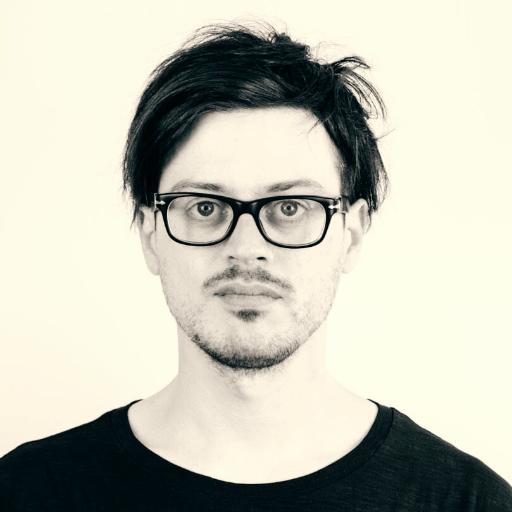
Alberto Granzotto
IPDB/BigchainDB

Alberto Granzotto
IPDB/BigchainDB
IPFS - The InterPlanetary File System
a next-generation hypermedia protocol to make the Web faster, safer, decentralized, and permanent.
IPFS -- the InterPlanetary File System -- is a next-generation web transport protocol to make the Web faster, safer, decentralized, and permanent. It is based on git, bittorrent, and other p2p systems. Content-addressed and signed hyperlinks allow web content and apps to be distributed peer-to-peer,... Read more.
IPFS - The InterPlanetary File System
a next-generation hypermedia protocol to make the Web faster, safer, decentralized, and permanent.
IPFS -- the InterPlanetary File System -- is a next-generation web transport protocol to make the Web faster, safer, decentralized, and permanent. It is based on git, bittorrent, and other p2p systems. Content-addressed and signed hyperlinks allow web content and apps to be distributed peer-to-peer, to work without an origin server, to be encrypted end-to-end, to be censorship resistant, to work while offline, and more.
IPFS has been hailed by many web developers and network researchers as "the future of the web", as "the next breakthrough protocol", and as "the most exciting project since bitcoin". Though in alpha, hundreds of developers already use IPFS to distribute Billions of files, to make distributed webapps, to archive large datasets, to make dynamic realtime apps, and more. IPFS has a large (400+) open source development community.
These are some of the things IPFS already can do or will do in the future:
- Decentralized and distributed apps and webapps (no origin server, work in local area networks, do not need infrastructure beyond the brower, etc).
- Secure, authenticated transfers (think wget + git + pgp)
- Vastly improved network utilization and download speeds
- Apps and Webapps that can continue to work in internet-remote environments, through uplink outages, through natural disasters, connectivity disruption, etc.
- Give permanence to digital objects (think DOI but cryptographically secure and without a central authority)
- Bandwidth sharing for data distribution -- including for web content
- Decentralized naming, with no authority (cryptographic names)
- Self-archiving web -- Apps, Webapps, and Data that can outlast its creators
- Anti-censorship web -- content is not centrally named and can be re-distributed by anyone.
Representing at the Summit:
- Juan Benet
- David Dias
- Jeromy Johnson
Notable others:
- Samuli Poyhtari
- Lars Gierth
- Fridel Ziegelmayer
- Nicola Greco
- Mildred Ki'La
- Richard Littauer
- David A Roberts
- Matt Bell
- Christian Couder
And 400+ other contributors.
IPFS has been hailed by many web developers and network researchers as "the future of the web", as "the next breakthrough protocol", and as "the most exciting project since bitcoin". Though in alpha, hundreds of developers already use IPFS to distribute Billions of files, to make distributed webapps, to archive large datasets, to make dynamic realtime apps, and more. IPFS has a large (400+) open source development community.
These are some of the things IPFS already can do or will do in the future:
- Decentralized and distributed apps and webapps (no origin server, work in local area networks, do not need infrastructure beyond the brower, etc).
- Secure, authenticated transfers (think wget + git + pgp)
- Vastly improved network utilization and download speeds
- Apps and Webapps that can continue to work in internet-remote environments, through uplink outages, through natural disasters, connectivity disruption, etc.
- Give permanence to digital objects (think DOI but cryptographically secure and without a central authority)
- Bandwidth sharing for data distribution -- including for web content
- Decentralized naming, with no authority (cryptographic names)
- Self-archiving web -- Apps, Webapps, and Data that can outlast its creators
- Anti-censorship web -- content is not centrally named and can be re-distributed by anyone.
Representing at the Summit:
- Juan Benet
- David Dias
- Jeromy Johnson
Notable others:
- Samuli Poyhtari
- Lars Gierth
- Fridel Ziegelmayer
- Nicola Greco
- Mildred Ki'La
- Richard Littauer
- David A Roberts
- Matt Bell
- Christian Couder
And 400+ other contributors.

Juan Benet
IPFS

Juan Benet
IPFS
Juan Benet created IPFS, Filecoin, and other open source protocols. He is the founder of Protocol Labs, a company improving how the internet works. He studied Computer Science (Distributed Systems) at Stanford University. Juan is obsessed with Knowledge, Science, and Technology.

David Dias
Protocol Labs/IPFS

David Dias
Protocol Labs/IPFS
David is a Peer-to-Peer Software Engineer at Protocol Labs. He is building the InterPlanetary File System, which enables the creation of completely distributed applications. He has also contributed to nodesecurity.io and built several modules that enable developers to check for vulnerabilities. He has a Master of Science in Engineering with major in Peer-to-Peer Networks from Technical University of Lisbon.
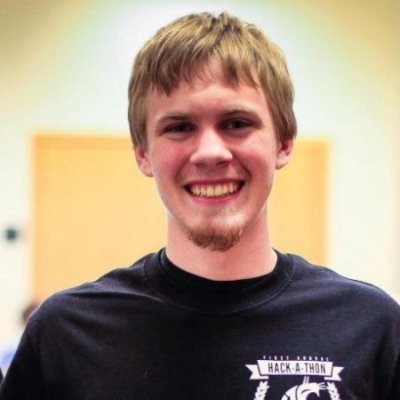
Jeromy Johnson
IPFS

Jeromy Johnson
IPFS
Jeromy is a Peer to Peer Software Engineer at Protocol Labs who goes by whyrusleeping on the internet. He is currently working on IPFS (The Interplanetary FileSystem) to improve the unrestricted flow of data through the decentralized web. Prior to Protocol Labs he worked on distributed filesystems at EMC Isilon and earned a Bachelors Degree with a major in Computer Science at Washington State University.
IndieWeb
a people-focused alternative to the ‘corporate web’.
Your content is yours
When you post something on the web, it should belong to you, not a corporation. Too many companies have gone out of business and lost all of their users’ data. By joining the IndieWeb, your content stays yours and in your control.
You are better connected
Your... Read more.
When you post something on the web, it should belong to you, not a corporation. Too many companies have gone out of business and lost all of their users’ data. By joining the IndieWeb, your content stays yours and in your control.
You are better connected
Your... Read more.
IndieWeb
a people-focused alternative to the ‘corporate web’.
Your content is yours
When you post something on the web, it should belong to you, not a corporation. Too many companies have gone out of business and lost all of their users’ data. By joining the IndieWeb, your content stays yours and in your control.
You are better connected
Your articles and status messages can go to all services, not just one, allowing you to engage with everyone. Even replies and likes on other services can come back to your site so they’re all in one place.
You are in control
You can post anything you want, in any format you want, with no one monitoring you. In addition, you share simple readable links such as example.com/ideas These links are permanent and will always work.
Key principles of building on the indie web, numbered for reference, not necessarily for any kind of priority.
✊ Own your data.
🔍 Use visible data for humans first, machines second. See also DRY.
💪 Build tools for yourself, not for all of your friends. It's extremely hard to fight Metcalfe's law: you won't be able to convince all your friends to join the independent web. But if you build something that satisfies your own needs, but is backwards compatible for people who haven't joined in (say, by practicing POSSE), the time and effort you've spent building your own tools isn't wasted just because others haven't joined in yet.
😋 Eat your own dogfood. Whatever you build should be for yourself. If you aren't depending on it, why should anybody else? We call that selfdogfooding. More importantly, build the indieweb around your needs. If you design tools for some hypothetical user, they may not actually exist; if you build tools for yourself, you actually do exist. selfdogfooding is also a form of "proof of work" to help focus on productive interactions.
📓 Document your stuff. You've built a place to speak your mind, use it to document your processes, ideas, designs and code. At least document it for your future self.
💞 Open source your stuff! You don't have to, of course, but if you like the existence of the indie web, making your code open source means other people can get on the indie web quicker and easier.
📐 UX and design is more important than protocols, formats, data models, schema etc. We focus on UX first, and then as we figure that out we build/develop/subset the absolutely simplest, easiest, and most minimal protocols & formats sufficient to support that UX, and nothing more. AKA UX before plumbing.
🌐 Build platform agnostic platforms. The more your code is modular and composed of pieces you can swap out, the less dependent you are on a particular device, UI, templating language, API, backend language, storage model, database, platform. The more your code is modular, the greater the chance that at least some of it can and will be re-used, improved, which you can then reincorporate.
🗿 Longevity. Build for the long web. If human society is able to preserve ancient papyrus, Victorian photographs and dinosaur bones, we should be able to build web technology that doesn't require us to destroy everything we've done every few years in the name of progress.
✨ Plurality. With IndieWebCamp we've specifically chosen to encourage and embrace a diversity of approaches & implementations. This background makes the IndieWeb stronger and more resilient than any one (often monoculture) approach.
🎉 Have fun. Remember that GeoCities page you built back in the mid-90s? The one with the Java applets, garish green background and seventeen animated GIFs? It may have been ugly, badly coded and sucky, but it was fun, damnit. Keep the web weird and interesting.
Amber Case, Kevin Marks, Amy Guy, Dan Gillmor
When you post something on the web, it should belong to you, not a corporation. Too many companies have gone out of business and lost all of their users’ data. By joining the IndieWeb, your content stays yours and in your control.
You are better connected
Your articles and status messages can go to all services, not just one, allowing you to engage with everyone. Even replies and likes on other services can come back to your site so they’re all in one place.
You are in control
You can post anything you want, in any format you want, with no one monitoring you. In addition, you share simple readable links such as example.com/ideas These links are permanent and will always work.
Key principles of building on the indie web, numbered for reference, not necessarily for any kind of priority.
✊ Own your data.
🔍 Use visible data for humans first, machines second. See also DRY.
💪 Build tools for yourself, not for all of your friends. It's extremely hard to fight Metcalfe's law: you won't be able to convince all your friends to join the independent web. But if you build something that satisfies your own needs, but is backwards compatible for people who haven't joined in (say, by practicing POSSE), the time and effort you've spent building your own tools isn't wasted just because others haven't joined in yet.
😋 Eat your own dogfood. Whatever you build should be for yourself. If you aren't depending on it, why should anybody else? We call that selfdogfooding. More importantly, build the indieweb around your needs. If you design tools for some hypothetical user, they may not actually exist; if you build tools for yourself, you actually do exist. selfdogfooding is also a form of "proof of work" to help focus on productive interactions.
📓 Document your stuff. You've built a place to speak your mind, use it to document your processes, ideas, designs and code. At least document it for your future self.
💞 Open source your stuff! You don't have to, of course, but if you like the existence of the indie web, making your code open source means other people can get on the indie web quicker and easier.
📐 UX and design is more important than protocols, formats, data models, schema etc. We focus on UX first, and then as we figure that out we build/develop/subset the absolutely simplest, easiest, and most minimal protocols & formats sufficient to support that UX, and nothing more. AKA UX before plumbing.
🌐 Build platform agnostic platforms. The more your code is modular and composed of pieces you can swap out, the less dependent you are on a particular device, UI, templating language, API, backend language, storage model, database, platform. The more your code is modular, the greater the chance that at least some of it can and will be re-used, improved, which you can then reincorporate.
🗿 Longevity. Build for the long web. If human society is able to preserve ancient papyrus, Victorian photographs and dinosaur bones, we should be able to build web technology that doesn't require us to destroy everything we've done every few years in the name of progress.
✨ Plurality. With IndieWebCamp we've specifically chosen to encourage and embrace a diversity of approaches & implementations. This background makes the IndieWeb stronger and more resilient than any one (often monoculture) approach.
🎉 Have fun. Remember that GeoCities page you built back in the mid-90s? The one with the Java applets, garish green background and seventeen animated GIFs? It may have been ugly, badly coded and sucky, but it was fun, damnit. Keep the web weird and interesting.
Amber Case, Kevin Marks, Amy Guy, Dan Gillmor

Amber Case
Calm Technology

Amber Case
Calm Technology
Amber Case is a cyborg anthropologist and user experience designer from Portland, Oregon. She studies the interaction between humans and computers and how our relationship with information is changing the way cultures think, act, and understand their worlds. She is the author of An Illustrated Dictionary of Cyborg Anthropology and Calm Technology, as well as the former founder of Geoloqi/Esri.

Kevin Marks
Indieweb

Kevin Marks
Indieweb

Dan Gillmor
Author, Tech Journalist

Dan Gillmor
Author, Tech Journalist
Dan Gillmor teaches, writes, and speaks on the development of media and technology. At Arizona State University's Walter Cronkite School of Journalism and Mass Communication, he teaches digital media literacy and promotes entrepreneurship in journalism. He is author of We the Media: Grassroots Journalism by the People, for the People and Mediactive. His upcoming project, entitled Permission Taken, looks at the increasing control that companies and governments are exerting over the way we use technology and communicate, and how we can take back some of that control. Dan writes a regular column for Slate's Future Tense channel, and is a frequent contributor to Medium's Backchannel technology site. He has co-founded, advised, and served on boards at a number of media-related companies and nonprofits, and speaks widely around the world on media and technology topics.
Interledger
Send money to anyone, on any payment network or ledger, as easily as sending them a packet of data over the Internet.
Interledger is the protocol suite for connecting blockchains, payment networks, and other ledgers. Interledger enables payments between parties on different ledgers, meaning developers can build payments into other protocols and apps without being tied to a single payment provider or currency.... Read more.
Interledger
Send money to anyone, on any payment network or ledger, as easily as sending them a packet of data over the Internet.
Interledger is the protocol suite for connecting blockchains, payment networks, and other ledgers. Interledger enables payments between parties on different ledgers, meaning developers can build payments into other protocols and apps without being tied to a single payment provider or currency. Interledger is inspired by the designs of IP, TCP, etc and aims to connect the world’s ledgers like the internet protocols connected its information networks.

Evan Schwartz
Interledger

Evan Schwartz
Interledger
Evan Schwartz is co-inventor of Interledger, the protocol suite for connecting blockchains, payment networks and other digital asset ledgers. Interledger enables payments between parties on different ledgers, meaning developers can build payments into other protocols and apps without being tied to a single payment provider or currency. Interledger is inspired by the designs of IP, TCP, etc and aims to connect the world’s ledgers like the internet protocols connected its information networks.

Stefan Thomas
Interledger

Stefan Thomas
Interledger
Stefan Thomas wants to live in a world where currency moves as frictionlessly as information. As CTO of Ripple, he is helping to build an Internet protocol that does just that. Stefan is one of the co-creators of the Interledger Protocol. The Interledger Protocol is a protocol suite for connecting blockchains and other ledgers. It’s a neutral protocol for payments across different currencies and payment systems.
Jolocom
To overcome the challanges induced by proprietary and centralized internet services by empowering users to be in full control over their data using free and open communication standards that promote decentralization.
Today's internet is dominated by proprietary and centralized services run by private corporations. Many of these companies generate their revenue with the data they receive from users: data is uploaded/stored by the client (the user) to the "cloud" (the service provider). The resulting ecosystem... Read more.
Jolocom
To overcome the challanges induced by proprietary and centralized internet services by empowering users to be in full control over their data using free and open communication standards that promote decentralization.
Today's internet is dominated by proprietary and centralized services run by private corporations. Many of these companies generate their revenue with the data they receive from users: data is uploaded/stored by the client (the user) to the "cloud" (the service provider). The resulting ecosystem implies several challenging problems:
1) When a user uploads data she usually gives up control over it (loss of true ownership).
2) The user may then not be able to export/transfer her data to another service provider (vendor locking).
3) The user could loose her data altogether should the provider stop it's service (single point of failure).
4) When a user signs up for another service she may have to enter the same information repeatedly (data duplication).
5) The service provider has to manage more and more user data with changing legal/privacy requirements (cost of data management).
6) User data stored at the service provider is bound to become out of date (cost of data quality).
7) Service providers that have grown into quasi monopolies tend to inhibit market competition and product diversity (market failure).
8) Service provider monopolies are at risk to use their power in ways that are harmful to individuals or society as a whole e.g. through activities of censorship, data manipulation or surveillance (risk of power abuse).
The relevance of these issues is expected to rise when we enter the era of Internet of Things where billions of smart sensors start to collect more and more privacy invasive data sets.
Knowing this and considering our ethical and technical concerns we are convinced that the solution can only mean that users must first and foremost be empowered to be in full control of their own data.
Can this goal be achieved while still being compatible with the existing world and/or even beneficial to data processing service providers?
We believe so and think to have found a promising solution in Social Linked Data (Solid). In simple terms, Solid maps data in the web to a graph where the graph nodes represent resources (e.g. an image, a user profile) and the connecting vertices the relationship between them (e.g. "image user profile"). Users can create nodes and links between them. As a node owner the user can define permissions (i.e. who can read/write/delete the node). As each node could be deployed to it's own server the graph features attributes of a decentralized network. Service providers (or anyone else) can build applications that operate on top of the graph requesting permissions to read nodes while respecting data owners sovereignty.
The Jolocom project is currently implementing a Solid application as a proof of concept. The current focus is to provide its users with seamless "graph" interaction and to explore how it can be connected to the the existing world. Advanced features such as identity management and distributed search are work in progress. Other decentralized technologies that can enhance the graph are under evaluation (e.g. IPFS for node replication, Blockstack for decentralized DNS, blockchain for managing identities.) Team Members: Annika Hamann, Carla Hubbard, Christian Hildebrand, Eelco Wiersma, Eric Fanghanel, Eugeniu Rusu, Fred Grosskopf, Isabel Stewart, Joachim Lohkamp, Justas Azna, Markus Sabadello
1) When a user uploads data she usually gives up control over it (loss of true ownership).
2) The user may then not be able to export/transfer her data to another service provider (vendor locking).
3) The user could loose her data altogether should the provider stop it's service (single point of failure).
4) When a user signs up for another service she may have to enter the same information repeatedly (data duplication).
5) The service provider has to manage more and more user data with changing legal/privacy requirements (cost of data management).
6) User data stored at the service provider is bound to become out of date (cost of data quality).
7) Service providers that have grown into quasi monopolies tend to inhibit market competition and product diversity (market failure).
8) Service provider monopolies are at risk to use their power in ways that are harmful to individuals or society as a whole e.g. through activities of censorship, data manipulation or surveillance (risk of power abuse).
The relevance of these issues is expected to rise when we enter the era of Internet of Things where billions of smart sensors start to collect more and more privacy invasive data sets.
Knowing this and considering our ethical and technical concerns we are convinced that the solution can only mean that users must first and foremost be empowered to be in full control of their own data.
Can this goal be achieved while still being compatible with the existing world and/or even beneficial to data processing service providers?
We believe so and think to have found a promising solution in Social Linked Data (Solid). In simple terms, Solid maps data in the web to a graph where the graph nodes represent resources (e.g. an image, a user profile) and the connecting vertices the relationship between them (e.g. "image
The Jolocom project is currently implementing a Solid application as a proof of concept. The current focus is to provide its users with seamless "graph" interaction and to explore how it can be connected to the the existing world. Advanced features such as identity management and distributed search are work in progress. Other decentralized technologies that can enhance the graph are under evaluation (e.g. IPFS for node replication, Blockstack for decentralized DNS, blockchain for managing identities.) Team Members: Annika Hamann, Carla Hubbard, Christian Hildebrand, Eelco Wiersma, Eric Fanghanel, Eugeniu Rusu, Fred Grosskopf, Isabel Stewart, Joachim Lohkamp, Justas Azna, Markus Sabadello

Fred Grosskopf
Jolocom

Fred Grosskopf
Jolocom
Fred is an independent software developer who is currently supporting the Jolocom project. He believes truly free and self-determined communication is a fundamental good that human society needs to overcome the challenges it is facing.

Joachim Lohkamp
Jolocom/Ouishare

Joachim Lohkamp
Jolocom/Ouishare
Joachim is an entrepreneur and tech enthusiast. He is obsessed with knowledge, change and innovation. Currently, he is Founder and CEO of Jolocom, a Berlin-based startup building decentralized tools that lets you generate your own digital identity to assist linkage and attribution of data. Besides that Joachim is a connector for Ouishare, currently curating the content for the Decentralization & Blockchain track of the next Ouishare Fest in Paris. Also he organizes GETDcent and is an active member of the Agora Collective in Berlin.
Let's Encrypt/Certbot (EFF)
Encrypt the entire web.
Let’s Encrypt is a free, automated, and open certificate authority (CA), run for the public’s benefit. Let's Encrypt provides certificates automatically, for free, using an open standard.
Certbot is an easy-to-use automatic client that fetches and deploys SSL/TLS certificates for your... Read more.
Certbot is an easy-to-use automatic client that fetches and deploys SSL/TLS certificates for your... Read more.
Let's Encrypt/Certbot (EFF)
Encrypt the entire web.
Let’s Encrypt is a free, automated, and open certificate authority (CA), run for the public’s benefit. Let's Encrypt provides certificates automatically, for free, using an open standard.
Certbot is an easy-to-use automatic client that fetches and deploys SSL/TLS certificates for your webserver. Certbot was developed by EFF and others as a client for Let’s Encrypt and was previously known as “the official Let’s Encrypt client” or “the Let’s Encrypt Python client.” Certbot will also work with any other CAs that support the ACME protocol.
Certbot is an easy-to-use automatic client that fetches and deploys SSL/TLS certificates for your webserver. Certbot was developed by EFF and others as a client for Let’s Encrypt and was previously known as “the official Let’s Encrypt client” or “the Let’s Encrypt Python client.” Certbot will also work with any other CAs that support the ACME protocol.

Noah Swartz
EFF--Privacy Badger, Certbot

Noah Swartz
EFF--Privacy Badger, Certbot
Noah is a Staff Technologist on the Tech Projects team. He works on the various software the EFF produces and maintains, including but not limited to Privacy Badger. Before joining EFF Noah was a researcher at the MIT Media Lab as well as a technomancer and free software/culture advocate. An avid game enthusiast, Noah was previously a professional Magic: the Gathering player, and has ascended in nethack four times. He lives in the Mission District of San Francisco with his family of twitterbots.

Jeremy Gillula
EFF--Privacy Badger, Certbot

Jeremy Gillula
EFF--Privacy Badger, Certbot
At a young age Jeremy was sidetracked from his ultimate goal of protecting digital civil liberties by the allure of building and programming robots, which was the focus of his work in college and grad school. Having worked on drones and autonomous cars he is aware of their potential benefits for society, but is also that much more prepared to guard against the dangers they present to privacy and civil liberties. Of course, having worked at EFF for nearly a year Jeremy has covered a wide variety of tech topics, including mobile devices, big data, and net neutrality, just to name a few. A strong believer in never taking the straightforward path to anything, Jeremy went to Caltech for undergrad, then got his PhD in computer science from Stanford University by working on robotics projects with a professor in electrical engineering from UC Berkeley. Privacy Badger is a browser plug-in that algorithmically detects and blocks third party trackers as you browse the web and Certbot is a client for the Let's Encrypt CA (or any other CA that supports the ACME protocol) that automatically gets SSL/TLS certs and installs them to enable HTTPS on your website
Mediachain
Mediachain is a universal media library that utilizes content ID technology.
Every day billions of images, songs, videos, and written works are shared online, but they quickly lose connection to their creator or any information about them as they are reposted. What if all data about media was completely open and decentralized, and developers could utilize the technology... Read more.
Mediachain
Mediachain is a universal media library that utilizes content ID technology.
Every day billions of images, songs, videos, and written works are shared online, but they quickly lose connection to their creator or any information about them as they are reposted. What if all data about media was completely open and decentralized, and developers could utilize the technology behind Shazam or Google Image Search to easily retrieve it? We’d know who made what, its history, or even how to pay the creator, in a completely decentralized, programmable way.
Mediachain combines a decentralized media library with open content identification technology to enable collaboratively registering, identifying, and tracking creative works online. In turn, developers can automate attribution, preserve history, provide creators and organizations with rich analytics about how their content is being used, and even create a channel for exchanging value directly through content, no matter where it is.
Imagine being able to connect with the artist of a viral GIF in your feed or being able to automatically reward musicians whenever you press play.
Mediachain is an open source project, started in January 2016. Unlike other media libraries, Mediachain employs a decentralized architecture built on top of IPFS, meaning there is no central point of control and the network is open to anyone wishing to participate. This makes it an ideal environment for collaboration and innovation among media organizations, distribution platforms, and independent creators and developers who want to retain control over their data while broadening their reach.
Mediachain combines a decentralized media library with open content identification technology to enable collaboratively registering, identifying, and tracking creative works online. In turn, developers can automate attribution, preserve history, provide creators and organizations with rich analytics about how their content is being used, and even create a channel for exchanging value directly through content, no matter where it is.
Imagine being able to connect with the artist of a viral GIF in your feed or being able to automatically reward musicians whenever you press play.
Mediachain is an open source project, started in January 2016. Unlike other media libraries, Mediachain employs a decentralized architecture built on top of IPFS, meaning there is no central point of control and the network is open to anyone wishing to participate. This makes it an ideal environment for collaboration and innovation among media organizations, distribution platforms, and independent creators and developers who want to retain control over their data while broadening their reach.

Denis Nazarov
Mediachain

Denis Nazarov
Mediachain
mediachain.io
Denis is a Project Lead at Mediachain — an open data network for creative works--a blockchain-based metadata platform that uses machine learning to turn media into an information transmitter.

Arkadiy Kukarkin
Mediachain.io

Arkadiy Kukarkin
Mediachain.io
Mediachain.io
Arkadiy is the CTO of Mediachain Labs, the organization that leads and supports development of the open-source Mediachain project, a universal media library. He previously worked on the music aggregator Hype Machine and on GIS at Foursquare.
Mozilla
Build a layer of the Internet that is a global public resource, open and accessible to all
Our mission is to ensure the Internet is a global public resource, open and accessible to all. An Internet that truly puts people first, where individuals can shape their own experience and are empowered, safe and independent.
At Mozilla, we’re a global community of technologists, thinkers... Read more.
At Mozilla, we’re a global community of technologists, thinkers... Read more.
Mozilla
Build a layer of the Internet that is a global public resource, open and accessible to all
Our mission is to ensure the Internet is a global public resource, open and accessible to all. An Internet that truly puts people first, where individuals can shape their own experience and are empowered, safe and independent.
At Mozilla, we’re a global community of technologists, thinkers and builders working together to keep the Internet alive and accessible, so people worldwide can be informed contributors and creators of the Web. We believe this act of human collaboration across an open platform is essential to individual growth and our collective future.
At Mozilla, we’re a global community of technologists, thinkers and builders working together to keep the Internet alive and accessible, so people worldwide can be informed contributors and creators of the Web. We believe this act of human collaboration across an open platform is essential to individual growth and our collective future.

Mitchell Baker
Mozilla Foundation & Corp, Executive Chairperson

Mitchell Baker
Mozilla Foundation & Corp, Executive Chairperson
As the leader of the Mozilla Project, Mitchell Baker is responsible for organizing and motivating a massive, worldwide, collective of employees and volunteers who are breathing new life into the Internet with the Firefox Web browser, Firefox OS and other Mozilla products. Mitchell continues her commitment to an open, innovative Web and the infinite possibilities it presents.

Sean White
Mozilla Foundation

Sean White
Mozilla Foundation
Sean White is a high-tech executive, entrepreneur, inventor, and musician who has spent his career leading innovative development of the experiences, systems, and technologies that enable creative expression, connect us to each other, and enhance our understanding of the world around us. He was most recently the founder and CEO of BrightSky Labs, a company he incubated while an EIR at Greylock Partners, and is currently teaching CS377m: HCI Issues in Mixed & Augmented Reality at Stanford University.
Namecoin
Decentralized naming system based on Bitcoin algorithms, code, and threat model
Namecoin is the first naming system that is simultaneously global (everyone gets the same result for the same lookup), decentralized (no central party decides which names map to which values), and human-meaningful (names aren't just a hash or something similarly opaque to humans). Previous naming... Read more.
Namecoin
Decentralized naming system based on Bitcoin algorithms, code, and threat model
Namecoin is the first naming system that is simultaneously global (everyone gets the same result for the same lookup), decentralized (no central party decides which names map to which values), and human-meaningful (names aren't just a hash or something similarly opaque to humans). Previous naming systems such as the standard DNS system, .onion, and .i2p are unable to simultaneously achieve all 3 of these properties.
Namecoin achieves this by recognizing that Bitcoin's achievement of a decentralized consensus (via a Nakamoto blockchain) has applications outside of the financial system, including naming. Namecoin was the first fork of Bitcoin (we forked Bitcoin before it was cool), and extends Bitcoin's blockchain validation rules to allow coins to represent human-readable names with arbitrary values attached. The Namecoin blockchain validation rules enforce that all transactions in the blockchain honor uniqueness of names, and that only the owner of a name can update its value. Namecoin's threat model is very similar to that of Bitcoin: like Bitcoin, Namecoin is mined via SHA256D proof-of-work, and inclusion in the blockchain of a transaction (even if checked via a lightweight client) implies that miners have verified the transaction's correctness.
Namecoin's current and proposed use cases include DNS, replacing HTTPS certificate authorities, providing DNS for non-IP protocols such as Tor hidden services, I2P, and Freenet, public key verification for protocols such as PGP and OTR, and single sign-on for website users.
Namecoin has an international development team, and is always looking for new contributors. We'd also love to collaborate with your project.
Namecoin achieves this by recognizing that Bitcoin's achievement of a decentralized consensus (via a Nakamoto blockchain) has applications outside of the financial system, including naming. Namecoin was the first fork of Bitcoin (we forked Bitcoin before it was cool), and extends Bitcoin's blockchain validation rules to allow coins to represent human-readable names with arbitrary values attached. The Namecoin blockchain validation rules enforce that all transactions in the blockchain honor uniqueness of names, and that only the owner of a name can update its value. Namecoin's threat model is very similar to that of Bitcoin: like Bitcoin, Namecoin is mined via SHA256D proof-of-work, and inclusion in the blockchain of a transaction (even if checked via a lightweight client) implies that miners have verified the transaction's correctness.
Namecoin's current and proposed use cases include DNS, replacing HTTPS certificate authorities, providing DNS for non-IP protocols such as Tor hidden services, I2P, and Freenet, public key verification for protocols such as PGP and OTR, and single sign-on for website users.
Namecoin has an international development team, and is always looking for new contributors. We'd also love to collaborate with your project.

Jeremy Rand
Namecoin

Jeremy Rand
Namecoin
Jeremy is Lead Application Engineer and Community Organizer of Namecoin, a naming system (currently used for DNS and identities) which backs authenticity of records with the same algorithms and code used to back financial transactions in Bitcoin. Jeremy wears many hats at Namecoin but spends much of his time working on applications which enhance online privacy.
Nodesphere
Nodesphere is an interoperability toolkit for creating and sharing
semantic graphs from a variety of data sources. Both a protocol and open
source codebase in early stage, it has three primary objectives:
1. Create interoperability among graph visualization interfaces
2.... Read more.
semantic graphs from a variety of data sources. Both a protocol and open
source codebase in early stage, it has three primary objectives:
1. Create interoperability among graph visualization interfaces
2.... Read more.
Nodesphere
Nodesphere is an interoperability toolkit for creating and sharing
semantic graphs from a variety of data sources. Both a protocol and open
source codebase in early stage, it has three primary objectives:
1. Create interoperability among graph visualization interfaces
2. Provide adaptors to connect these interfaces to personal data
ecosystems, including browsing history, social network data, cloud
storage, and ultimately, any public or private data
3. Abstract data sources into semantically linked unified dashboards,
facilitating the transition from traditional server & database systems
toward secure, distributed public and private storage, as these systems
become practical and performant
semantic graphs from a variety of data sources. Both a protocol and open
source codebase in early stage, it has three primary objectives:
1. Create interoperability among graph visualization interfaces
2. Provide adaptors to connect these interfaces to personal data
ecosystems, including browsing history, social network data, cloud
storage, and ultimately, any public or private data
3. Abstract data sources into semantically linked unified dashboards,
facilitating the transition from traditional server & database systems
toward secure, distributed public and private storage, as these systems
become practical and performant

Harlan T Wood
Co-Makery

Harlan T Wood
Co-Makery
Harlan is CTO of comakery.com cofounder of core.network, and architect of the nodesphere.org project. Nodesphere is a global-scale distributed content addressable semantic graph protocol and open source codebase. Its design goals are to create interoperability of heterogeneous data sources, maximize individual ownership and control of data, and enable a new generation of graph visualization browsers. Harlan brings a career of practical software development together with a diverse background including years of deep work with modern mystery schools.
SAFE Network
Security and privacy focused decentralized storage and communications platform
The SAFE Network is a decentralized network with user privacy and data security as its core. A decade of research and development has culminated into a platform which securely and anonymously distributes data globally while providing a sustainable economic system for the resources contributed by the... Read more.
SAFE Network
Security and privacy focused decentralized storage and communications platform
The SAFE Network is a decentralized network with user privacy and data security as its core. A decade of research and development has culminated into a platform which securely and anonymously distributes data globally while providing a sustainable economic system for the resources contributed by the users. Third party developers have opportunity to build applications which retain these security and privacy features by default on top of a network that is commonly owned by the global community of users.
Several innovations power this platform including third-party-less authentication, sharable client side encryption of data, obfuscated global routing, consensus-based data reliability and an economic system for user and developer incentives. While the release candidate will see a network facilitating decentralized storage, communication and asset transfer, a future goal will implement computation allowing for a truly decentralized alternative to the exiting Internet.
The current testing period allows for users to experience basic interfaces and even upload a website viewable in most browsers while developers can work with the exposed API to start integrating existing or building new applications which replace central storage needs in servers. The focus on inherent security allows developers to alleviate liability of user data and the users themselves to be safe from censorship or surveillance.
Several innovations power this platform including third-party-less authentication, sharable client side encryption of data, obfuscated global routing, consensus-based data reliability and an economic system for user and developer incentives. While the release candidate will see a network facilitating decentralized storage, communication and asset transfer, a future goal will implement computation allowing for a truly decentralized alternative to the exiting Internet.
The current testing period allows for users to experience basic interfaces and even upload a website viewable in most browsers while developers can work with the exposed API to start integrating existing or building new applications which replace central storage needs in servers. The focus on inherent security allows developers to alleviate liability of user data and the users themselves to be safe from censorship or surveillance.

Paige Peterson
MaidSafe

Paige Peterson
MaidSafe
Paige is an advocate for open standards, user privacy and decentralized technologies. She received a BFA practicing experimental art with a strong focus on complexity in nature through interactive installations. Her understanding of natural decentralized systems would map rather eloquently to her growing interest in censorship resistant technologies as she started working for mesh networking startup Open Garden and organizing many bitcoin and cryptocurrency events in San Francisco. In early 2014, Paige met Scotland-based company, MaidSafe who are building a peer-to-peer Internet stemming from similar principles within natural systems which were so attractive to her many years prior and she has been working on various communication efforts full-time with MaidSafe since.
SwellRT
Development Framework for building Decentralized Real-time Collaborative Apps
Building decentralized software is hard. Development frameworks are built thinking in centralized apps, moreover when thinking of collaborative apps. SwellRT is a development framework for building decentralized real-time collaborative apps, very easily and avoiding extra code to the developer.... Read more.
SwellRT
Development Framework for building Decentralized Real-time Collaborative Apps
Building decentralized software is hard. Development frameworks are built thinking in centralized apps, moreover when thinking of collaborative apps. SwellRT is a development framework for building decentralized real-time collaborative apps, very easily and avoiding extra code to the developer. SwellRT provides a server side (storage, sharing, identity, federation) and an API to build apps in JavaScript, Java or Android. Think of Google Drive RT API or Firebase but decentralized & open source.
We know decentralized apps/services can alleviate some of the current challenges of the Internet, such as centralization of data/power, or privacy issues. However, building truly decentralized apps/services is still a complex task. Developers spend plenty of effort integrating technologies and protocols, which involves that less resources can be committed to build actual features which provide value for final users.
SwellRT is a free/open source framework for developers which changes that: SwellRT makes it easy to build decentralized apps.
Its main principle is to hide all technical complexity of decentralization, allowing developers to keep focus on valuable service features. This is achieved thanks to:
- Out-of-the-box integrated Open Source solutions and standards for communication (WebSockets), concurrency control (Wave Protocol), storage, identity and federation (Matrix.org)
- Provide an easy and plain (but powerful) decentralized programming model, not requiring special training for developers.
- Give an API extremely easy to use in current platforms and apps, taking advantage of latests perks of programming languages such as JavaScript Proxies.
Examples? You may build decentralized versions of Google Docs, Etherpad, Trello or Slack... or new tools for collaborative drawing or collaborative mapping.
*How does it work?*
SwellRT is a client-server system where servers form a federated network. Each server handles a set of data and users in the network. SwellRT is not a classic database as long as it provides higher level services than those.
Data is organized in entities called Collaborative Objects. They are just self contained tree-like structures - a sort of JSON documents with metadata - that can be created on behalf of apps and users. Collaborative objects can be shared and used *in real time* from any client connected to any server according to different access control policies.
The simple API allows to login the network and to access objects as if they were native language objects, receiving/sending changes back & forth in real time. Team Members: Pablo Ojanguren, Samer Hassan, Antonio Tenorio, Antonio Tapiador, Javier Arroyo, Waqee Khalid
We know decentralized apps/services can alleviate some of the current challenges of the Internet, such as centralization of data/power, or privacy issues. However, building truly decentralized apps/services is still a complex task. Developers spend plenty of effort integrating technologies and protocols, which involves that less resources can be committed to build actual features which provide value for final users.
SwellRT is a free/open source framework for developers which changes that: SwellRT makes it easy to build decentralized apps.
Its main principle is to hide all technical complexity of decentralization, allowing developers to keep focus on valuable service features. This is achieved thanks to:
- Out-of-the-box integrated Open Source solutions and standards for communication (WebSockets), concurrency control (Wave Protocol), storage, identity and federation (Matrix.org)
- Provide an easy and plain (but powerful) decentralized programming model, not requiring special training for developers.
- Give an API extremely easy to use in current platforms and apps, taking advantage of latests perks of programming languages such as JavaScript Proxies.
Examples? You may build decentralized versions of Google Docs, Etherpad, Trello or Slack... or new tools for collaborative drawing or collaborative mapping.
*How does it work?*
SwellRT is a client-server system where servers form a federated network. Each server handles a set of data and users in the network. SwellRT is not a classic database as long as it provides higher level services than those.
Data is organized in entities called Collaborative Objects. They are just self contained tree-like structures - a sort of JSON documents with metadata - that can be created on behalf of apps and users. Collaborative objects can be shared and used *in real time* from any client connected to any server according to different access control policies.
The simple API allows to login the network and to access objects as if they were native language objects, receiving/sending changes back & forth in real time. Team Members: Pablo Ojanguren, Samer Hassan, Antonio Tenorio, Antonio Tapiador, Javier Arroyo, Waqee Khalid

Samer Hassan
Berkman Center / P2Pvalue

Samer Hassan
Berkman Center / P2Pvalue
Samer Hassan (PhD) is an activist and researcher, Fellow at the Berkman Center for Internet & Society (Harvard University) and Assistant Professor at the Universidad Complutense de Madrid (Spain). He has carried out interdisciplinary research in decentralized systems, social simulation and artificial intelligence resulting in 45 publications. He's UCM Principal Investigator in the EU-funded P2Pvalue project on building decentralized software for Commons-based peer production communities.
Tahoe-LAFS
distributed encrypted storage
Tahoe-LAFS (https://tahoe-lafs.org) is a system to store files and directories across multiple untrusted servers. Data is redundantly erasure-coded to be available even if some servers fail, and is encrypted to prevent server operators from learning or modifying your files.
Tahoe was first... Read more.
Tahoe was first... Read more.
Tahoe-LAFS
distributed encrypted storage
Tahoe-LAFS https://tahoe-lafs.org is a system to store files and directories across multiple untrusted servers. Data is redundantly erasure-coded to be available even if some servers fail, and is encrypted to prevent server operators from learning or modifying your files.
Tahoe was first created for an online personal-backup company (AllMyData, now defunct). The 1.0 open-source release was in 2008, and the latest (1.11.0) was in March 2016. Development is fairly active.
Tahoe-LAFS has a novel capability-based access control mechanism with no central administrators, identities, or ACLs. Each uploaded file gets a cryptographic "filecap" string, which is both necessary and sufficient to download the file. Servers do not learn filecaps. The system provides (im)mutable files and directories, and the directed graph of file objects enables easy sharing topologies. Clients can retain a single "rootcap", from which all their files are reachable.
Tahoe is written in Python, and has a basic HTTP API, a web-based directory browser, CLI tools, and FTP/SFTP frontends. Several backup tools have added support for Tahoe-LAFS as a backend.
Each Tahoe user joins a "grid", which is a particular set of clients and storage servers that connect to and hold data for each other. Each grid uses a central "Introducer" to distribute connectivity information.
We have several deployment styles in mind:
* "personal grid": e.g. my laptop, desktop, and a rented VPS server. This is a personal backup solution: if my laptop breaks, I recover from the desktop, and if the house burns down, I recover both (slowly) from the VPS.
* "friend net": a group of people configure their boxes as client+server, and store data on each other. This is a group backup solution, and is handy for sharing files among group members too.
* "commercial net": an individual pays a company to run a storage server for them. Paid backup solution.
We'd love to have a "one true grid" (of unbounded size, where all users of Tahoe everywhere would join the same grid), which would be easier to configure and explain. But we don't know how to make that work. Scaling connections and repair work is one problem, but tragedy-of-the-commons is the larger one. We currently expect most grids to include at most a few hundred machines.
Our philosophy is that you pay servers for storage, not for security (thus client-side encryption). And that you and your friends can probably provide service for each other.
Tahoe was first created for an online personal-backup company (AllMyData, now defunct). The 1.0 open-source release was in 2008, and the latest (1.11.0) was in March 2016. Development is fairly active.
Tahoe-LAFS has a novel capability-based access control mechanism with no central administrators, identities, or ACLs. Each uploaded file gets a cryptographic "filecap" string, which is both necessary and sufficient to download the file. Servers do not learn filecaps. The system provides (im)mutable files and directories, and the directed graph of file objects enables easy sharing topologies. Clients can retain a single "rootcap", from which all their files are reachable.
Tahoe is written in Python, and has a basic HTTP API, a web-based directory browser, CLI tools, and FTP/SFTP frontends. Several backup tools have added support for Tahoe-LAFS as a backend.
Each Tahoe user joins a "grid", which is a particular set of clients and storage servers that connect to and hold data for each other. Each grid uses a central "Introducer" to distribute connectivity information.
We have several deployment styles in mind:
* "personal grid": e.g. my laptop, desktop, and a rented VPS server. This is a personal backup solution: if my laptop breaks, I recover from the desktop, and if the house burns down, I recover both (slowly) from the VPS.
* "friend net": a group of people configure their boxes as client+server, and store data on each other. This is a group backup solution, and is handy for sharing files among group members too.
* "commercial net": an individual pays a company to run a storage server for them. Paid backup solution.
We'd love to have a "one true grid" (of unbounded size, where all users of Tahoe everywhere would join the same grid), which would be easier to configure and explain. But we don't know how to make that work. Scaling connections and repair work is one problem, but tragedy-of-the-commons is the larger one. We currently expect most grids to include at most a few hundred machines.
Our philosophy is that you pay servers for storage, not for security (thus client-side encryption). And that you and your friends can probably provide service for each other.

Brian Warner
Tahoe-LAFS

Brian Warner
Tahoe-LAFS
Brian builds Tahoe-LAFS, a distributed storage system that safely uses untrusted servers, and Magic Wormhole, the easiest secure file transfer tool ever.

Zooko Wilcox
Zcash/ Tahoe-LAFS

Zooko Wilcox
Zcash/ Tahoe-LAFS
Zooko has more than 20 years of experience in open, decentralized systems, cryptography and information security, and startups. He is recognized for his work on DigiCash, Mojo Nation, ZRTP, “Zooko's Triangle”, Tahoe-LAFS, BLAKE2, and SPHINCS. He is also the Founder and CEO of Least Authority. He sometimes blogs about health science. He tweets a lot. Zcash is a decentralized and open source cryptocurrency that aims to set a new standard for privacy through the use of groundbreaking cryptography.
The Tor Project
Tor provides anonymity, privacy, and censorship circumvention technology.
The Tor Project produces anonymity software that makes use of the Tor anonymity network. The Tor Network is a collection of thousands of relays run by volunteers all over the world.
Our most popular piece of software is the Tor Browser - a Firefox-based Tor-enabled web browser with... Read more.
Our most popular piece of software is the Tor Browser - a Firefox-based Tor-enabled web browser with... Read more.
The Tor Project
Tor provides anonymity, privacy, and censorship circumvention technology.
The Tor Project produces anonymity software that makes use of the Tor anonymity network. The Tor Network is a collection of thousands of relays run by volunteers all over the world.
Our most popular piece of software is the Tor Browser - a Firefox-based Tor-enabled web browser with additional protections against third party tracking and fingerprinting, as well as additional security features.
However, The Tor software and protocols are capable of much more interesting use cases for fully decentralized systems. Every Tor client is capable of creating "onion services", which are location-anonymous, encrypted, self-authenticating TCP-like communication endpoints that can enable common P2P Internet applications to operate over the Tor network in a decentralized and metadata-free fashion.
Interesting examples include an encrypted and metadata-free chat application called Ricochet, as well as an encrypted and metadata-free secure file sharing app called OnionShare.
https://www.torproject.org/about/corepeople.html.en
Our most popular piece of software is the Tor Browser - a Firefox-based Tor-enabled web browser with additional protections against third party tracking and fingerprinting, as well as additional security features.
However, The Tor software and protocols are capable of much more interesting use cases for fully decentralized systems. Every Tor client is capable of creating "onion services", which are location-anonymous, encrypted, self-authenticating TCP-like communication endpoints that can enable common P2P Internet applications to operate over the Tor network in a decentralized and metadata-free fashion.
Interesting examples include an encrypted and metadata-free chat application called Ricochet, as well as an encrypted and metadata-free secure file sharing app called OnionShare.
https://www.torproject.org/about/corepeople.html.en

Mike Perry
TOR

Mike Perry
TOR
Mike Perry serves as the Senior Developer dedicated to coordinating technical details between the Tor Browser and Core Tor teams. Mike has done work for The Tor Project for the past 10 years, leading the Tor Browser team for 4 of those years. Mike has also worked on several other areas of Tor, including network path selection, path security, load balancing, and latency improvements. Mike is currently spending time working on padding for traffic analysis, hidden service path selections, and prototypes of new projects that use Tor.
WebTorrent
Torrents in your web browser
What is WebTorrent?
WebTorrent is the first torrent client that works in the browser. YEP, THAT'S RIGHT. THE BROWSER.
It's written completely in JavaScript – the language of the web – and uses WebRTC for true peer-to-peer transport. No browser plugin, extension, or installation is... Read more.
WebTorrent is the first torrent client that works in the browser. YEP, THAT'S RIGHT. THE BROWSER.
It's written completely in JavaScript – the language of the web – and uses WebRTC for true peer-to-peer transport. No browser plugin, extension, or installation is... Read more.
WebTorrent
Torrents in your web browser
What is WebTorrent?
WebTorrent is the first torrent client that works in the browser. YEP, THAT'S RIGHT. THE BROWSER.
It's written completely in JavaScript – the language of the web – and uses WebRTC for true peer-to-peer transport. No browser plugin, extension, or installation is required.
Using open web standards, WebTorrent connects website users together to form a distributed, decentralized browser-to-browser network for efficient file transfer.
Why is this cool?
Imagine a video site like YouTube, where visitors help to host the site's content. The more people that use a WebTorrent-powered website, the faster and more resilient it becomes.
Browser-to-browser communication cuts out the middle-man and lets people communicate on their own terms. No more client/server – just a network of peers, all equal. WebTorrent is the first step in the journey to redecentralize the Web.
WebTorrent is the first torrent client that works in the browser. YEP, THAT'S RIGHT. THE BROWSER.
It's written completely in JavaScript – the language of the web – and uses WebRTC for true peer-to-peer transport. No browser plugin, extension, or installation is required.
Using open web standards, WebTorrent connects website users together to form a distributed, decentralized browser-to-browser network for efficient file transfer.
Why is this cool?
Imagine a video site like YouTube, where visitors help to host the site's content. The more people that use a WebTorrent-powered website, the faster and more resilient it becomes.
Browser-to-browser communication cuts out the middle-man and lets people communicate on their own terms. No more client/server – just a network of peers, all equal. WebTorrent is the first step in the journey to redecentralize the Web.

Feross Aboukhadijeh
WebTorrent

Feross Aboukhadijeh
WebTorrent
Feross is building WebTorrent (webtorrent.io), the first torrent client that works on the web (in the browser. He is bringing P2P to the masses with accessible, WebRTC-based P2P protocols.

DC Posch
WebTorrent.io

DC Posch
WebTorrent.io
DC Posch helped write Webtorrent Desktop, a streaming torrent client that connects to both traditional BitTorrent clients and web apps.
Zcash
censorship-resistant money, smart contracts, and shared database
Zcash is a cryptocurrency with selective transparency. Transactions that are posted to the blockchain are encrypted, and the creator of the transaction can disclose the decryption keys to selected parties so that they can see the contents of the transaction.
Everyone else can see only an... Read more.
Everyone else can see only an... Read more.
Zcash
censorship-resistant money, smart contracts, and shared database
Zcash is a cryptocurrency with selective transparency. Transactions that are posted to the blockchain are encrypted, and the creator of the transaction can disclose the decryption keys to selected parties so that they can see the contents of the transaction.
Everyone else can see only an encrypted transaction that reveals nothing about the sender, recipient, value transferred, or the attached metadata. Therefore everyone else (who hasn't been provided with the decryption key) cannot link transactions with one another (for example, can't tell if two transactions were performed by the same party or different parties).
Zero-knowledge proofs are used to prevent cheating -- each encrypted transaction comes with a zero-knowledge proof that the transaction doesn't create money out of thin air nor double-spend money.
This design has the following consequences:
* Censorship-resistant digital cash. Anyone can pay anyone else, without requiring permission and without fear of their transactions being spied on.
* Fungibility. Because the flow of money is not (usually) traceable very far back into history, you can rely on your Zcash to be worth face value -- worth as much as any other Zcash -- when you try to use it.
* Selective transparency. The blockchain is a shared database, a "single source of truth" that all users have consensus about. And the contents of the blockchain can be selectively revealed to chosen parties instead of being globally readable.
Everyone else can see only an encrypted transaction that reveals nothing about the sender, recipient, value transferred, or the attached metadata. Therefore everyone else (who hasn't been provided with the decryption key) cannot link transactions with one another (for example, can't tell if two transactions were performed by the same party or different parties).
Zero-knowledge proofs are used to prevent cheating -- each encrypted transaction comes with a zero-knowledge proof that the transaction doesn't create money out of thin air nor double-spend money.
This design has the following consequences:
* Censorship-resistant digital cash. Anyone can pay anyone else, without requiring permission and without fear of their transactions being spied on.
* Fungibility. Because the flow of money is not (usually) traceable very far back into history, you can rely on your Zcash to be worth face value -- worth as much as any other Zcash -- when you try to use it.
* Selective transparency. The blockchain is a shared database, a "single source of truth" that all users have consensus about. And the contents of the blockchain can be selectively revealed to chosen parties instead of being globally readable.

Zooko Wilcox
Zcash/ Tahoe-LAFS

Zooko Wilcox
Zcash/ Tahoe-LAFS
Zooko has more than 20 years of experience in open, decentralized systems, cryptography and information security, and startups. He is recognized for his work on DigiCash, Mojo Nation, ZRTP, “Zooko's Triangle”, Tahoe-LAFS, BLAKE2, and SPHINCS. He is also the Founder and CEO of Least Authority. He sometimes blogs about health science. He tweets a lot. Zcash is a decentralized and open source cryptocurrency that aims to set a new standard for privacy through the use of groundbreaking cryptography.
ZeroNet
Real-time updated, decentralized web pages
ZeroNet allows you to create decentralized, P2P and real-time updated websites using Bitcoin's cryptography and the BitTorrent network.
One of the main goal of the project is providing fast and enjoyable user experience without any configuration or technical needs.
For more complex... Read more.
One of the main goal of the project is providing fast and enjoyable user experience without any configuration or technical needs.
For more complex... Read more.
ZeroNet
Real-time updated, decentralized web pages
ZeroNet allows you to create decentralized, P2P and real-time updated websites using Bitcoin's cryptography and the BitTorrent network.
One of the main goal of the project is providing fast and enjoyable user experience without any configuration or technical needs.
For more complex websites ZeroNet offers a P2P synchronized, SQL database and the users anonymity ensured by the full Tor network support (.onion address peers).
Every website of the network is offline compatible, the internet connection is only required if you want to publish you new content to the network.
The project started in 2015, it's currently features decentralized blogs, forums, polls and end-to-end encrypted messaging sites.
One of the main goal of the project is providing fast and enjoyable user experience without any configuration or technical needs.
For more complex websites ZeroNet offers a P2P synchronized, SQL database and the users anonymity ensured by the full Tor network support (.onion address peers).
Every website of the network is offline compatible, the internet connection is only required if you want to publish you new content to the network.
The project started in 2015, it's currently features decentralized blogs, forums, polls and end-to-end encrypted messaging sites.

Tamas Kocsis
ZeroNet

Tamas Kocsis
ZeroNet
Tamas is a self-taught web builder from Hungary who has been in love with the Internet since the dial-up era. He is the founder and programmer of ZeroNet (https://zeronet.io), which allows you to create decentralized, P2P and real-time updated websites using Bitcoin cryptography and the BitTorrent network.